SparkTalks Presenter Profiles | Nov. 14, 2024
Jeremiah Abiade Heading link
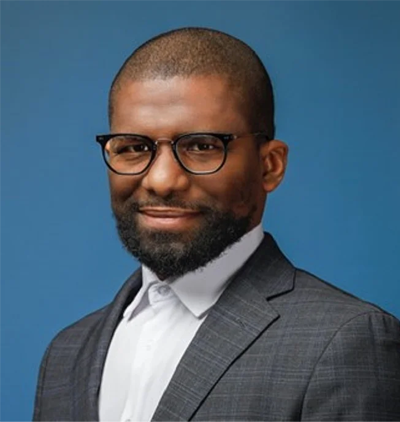
Associate Professor, Mechanical and Industrial Engineering
Faculty Director DuSable Scholars Program
Bio: Jeremiah Abiade was motivated to pursue a career in scientific research and also increase participation and outcomes for minoritized students during his training as a scholar in the Timbuktu Academy at Southern University and A&M College, where he earned his bachelor’s degree in physics. Abiade has participated and led DEI efforts at every point in his training and work in higher education. Abiade’s efforts have also been directed at diversifying the STEM faculty. Abiade has helped to recruit outstanding faculty candidates to UIC STEM departments and is as a mentor for STEM faculty.
His efforts at UIC have focused on dismantling non-evidenced-based educational practices that have a disproportionate and negative impact on Black students. For example, Abiade led the UIC Faculty Senate Committee that sponsored a resolution that was adopted to utilize holistic application review in undergraduate admissions. This effort, along with others, laid the groundwork for UIC becoming standardized-test optional for undergraduate applicants. Additionally, Abiade has led and collaborated on efforts to increase enrollment, retention, and graduation rates of minoritized students in various STEM programs.
He has served as the executive director of the National Science Foundation-funded Bridge to the Doctorate Program, the UIC site coordinator for the Louis Stokes Alliance for Minority Participation, and is the faculty director for the DuSable Scholars Program, a national model for recruitment and support of talented Black students in STEM at research-intensive institutions. Abiade’s research is conducted in the Laboratory for Oxide Research and Education, where lab members seek to answer questions in the areas of ferroic materials, bacteria-surface interactions and the use of thin films for a variety of other applications.
Presentation title: Does a Rising Tide Lift All Boats?
Abstract: In this SparkTalk I will introduce our team’s efforts to ensure the UIC student body is representative of the Chicago metropolitan area that our institution was built to educate and that these students, while at our institution, are well served. To do this, a cross-campus team of faculty and staff established the DuSable Scholars Program (DSP) in 2021. The DSP is a community of scholars dedicated to the preparation of talented Black STEM majors for success in doctoral programs. I will share the reason for starting this program, some details on early successes of the program, and a vision for national impact that will enhance the academic reputation of our institution and our economic value to our state.
Liza Calisesi Maidens, DMA Heading link
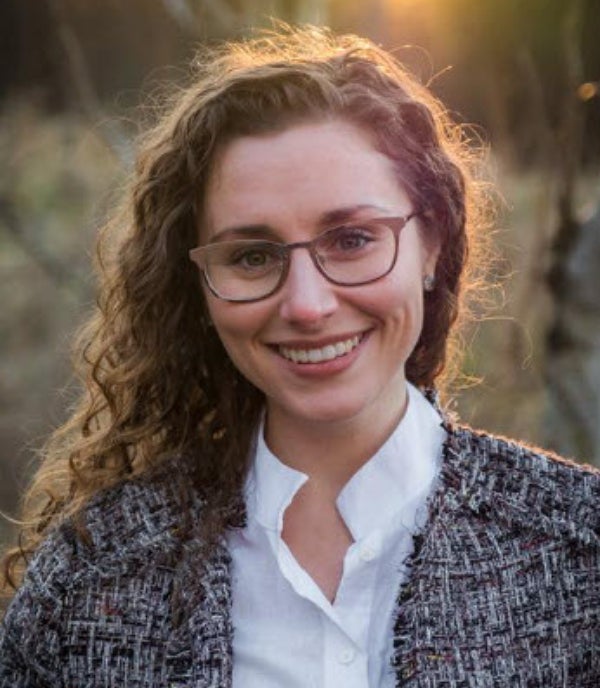
Assistant Professor, School of Theatre and Music
Director of Choral Activities
Bio: Liza Calisesi Maidens is an assistant professor and the director of choral activities at UIC School of Theatre and Music. Calisesi Maidens’ research centers around the expansion of the choral canon, the life and works of Imogen Holst and undergraduate student belonging. As an adjudicator and clinician, she has presented interest sessions at state, regional, national and international conferences of the American Choral Directors Association, the College Music Society and the International Society for Music Education. Her choirs have enjoyed invitations to perform at state music conferences in Michigan and Illinois, Detroit’s Orchestra Hall and the Detroit Opera House. Calisesi Maidens serves on the Illinois-ACDA board and has sung professionally with the Philadelphia Symphonic Choir, mirabai and sounding light. Her editions are published by MusicSpoke. She holds degrees from Michigan State University (DMA), Westminster Choir College (MM), Central College (BA).
Presentation title: Expanding the Choral Canon
Abstract: The overarching commitment in my scholarship has been expanding the choral canon. The goal of this research is to publish and perform choral works from the Renaissance and Baroque eras, highlighting voices that are often excluded from the canon. For example, Maddalena Casulana — first woman to publish her own compositions; Juana Ines de la Cruz — composer and nun who defended women’s right to knowledge; Vicente Lusitano — the first Black published composer of polyphony. I have been invited to present my research for national and regional music education and conducting conferences across the country. As part of these presentations, I share resources for this repertoire, demonstrate how to creatively program these works, and discern how to better approach equity of the white-framed canon with our students, professional musicians and audiences. I have published modern editions of this repertoire and continue to update and present this research annually.
In 2022, I was a recipient of one of the UIC Awards for Creative Activity from the Office of the Vice Chancellor for Research. The award funded an album recording project to support this area of my research. Last year, I recorded and released an album “Expanding the Choral Canon” with Bella Voce, the preeminent ensemble in Chicago for these specific genres and eras of choral music. The Centaur Records classical music label released the album in July 2024, and currently, the album is in the first round of voting for the GRAMMY ballot in consideration for Best Choral Performance and Best Engineered Album Classical.
My experience of bringing these new editions to fruition as a recording project has generated new teaching opportunities, as well; last year, I presented on this topic at the Illinois Music Educators Conference, for a graduate seminar at Eastern Michigan University, and during my artist-in-residency at the University of Nevada-Las Vegas. Additionally, I have included several of the works from the album in my curriculum for the UIC Choirs. Most recently, the UIC Chamber Choir performed one of my editions at two state conference invitations. As a result, music educators from around the state were exposed to these historically underrepresented composers, and learned about them through the lens of UIC student performers — a powerful experience for both educators and students.
Amy Campbell Heading link
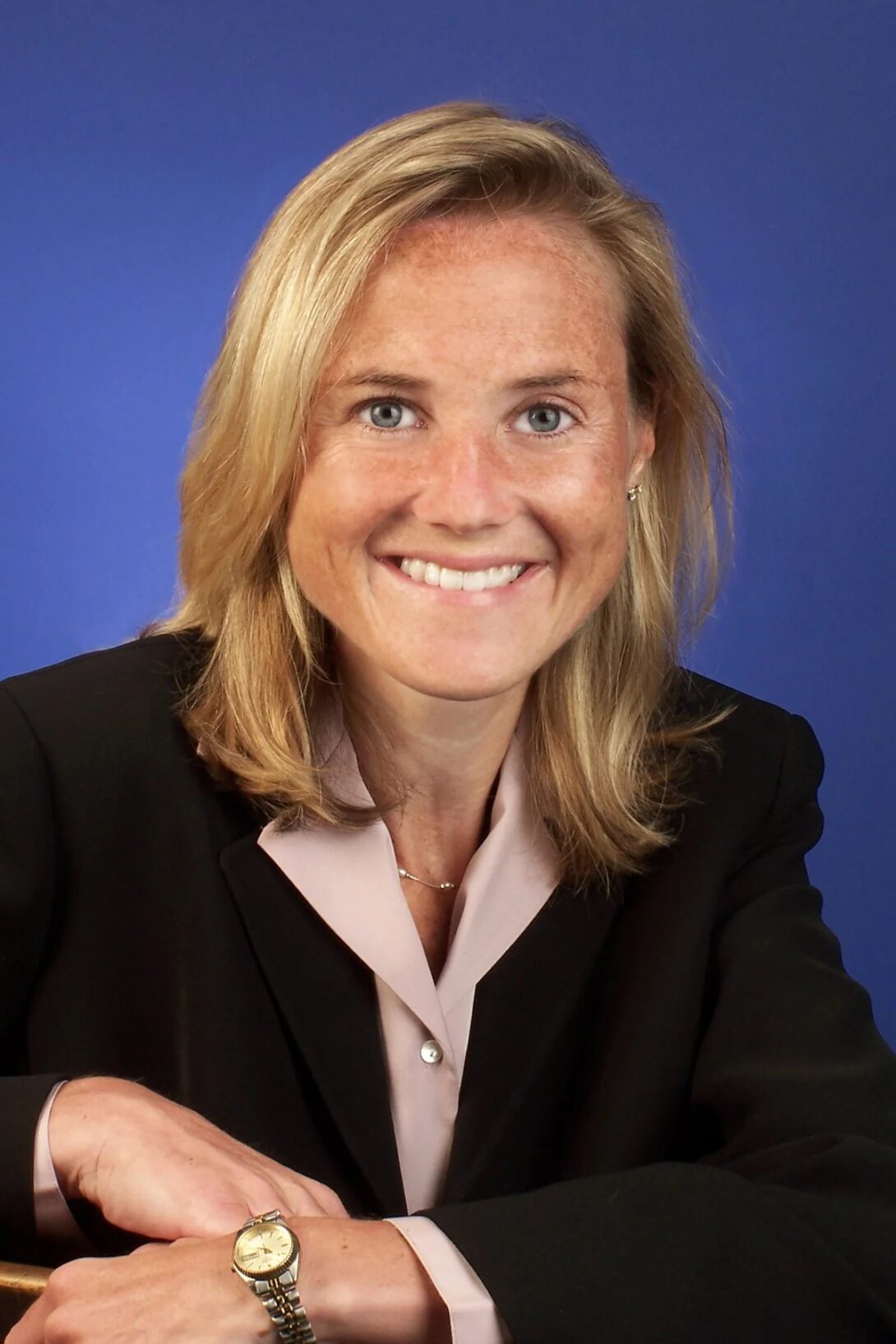
Associate Dean for Law and Health Sciences
Professor of Law
Bio: Amy Campbell joined UIC Law in the summer of 2020 as the inaugural associate dean for law and health sciences and professor of law, where she also developed and serves as faculty director of the Health Equity, Law and Policy Program (HELPP). Her current scholarly interests focus on how to rethink legal/policy approaches to advance mental health and, more broadly, how to develop health policy from a therapeutic, evidence-informed and ethical perspective. Dean Campbell was a founding board member of the International Society for Therapeutic Jurisprudence and began service as ISTJ board chair in summer 2023. She was also chosen as one of 16 fellows in the University of Illinois System’s Presidential Executive Leadership Program for the 2020-21 academic year. Dean Campbell received her law degree from Yale Law School, her master’s in bioethics from the University of Pennsylvania, and her Bachelor of Arts degree from the University of Notre Dame.
Presentation title: UIC Law Health Equity, Law and Policy Program: Advancing Health through Law with HELPP
Abstract: The Health Equity, Law and Policy Program at UIC Law seeks to create healthier communities and populations by transforming structures grounded in principles of health equity, justice and inclusion. Work takes place within and across the three pillars of education, research/scholarship and service. At a curricular level, this has involved launching a new concentration in health equity, law and policy geared for law students, while also expanding interprofessional educational opportunities, with early partners including public health, nursing and disability studies.
Beyond the formal curriculum, HELPP also looks to build collaborations with interdisciplinary and community partners to support innovative research initiatives by adding a critical legal/structural lens to these efforts. Critically, we also look to develop service-learning opportunities — to instill in students the value of lawyer as civic servant capable of utilizing legal/policy tools to engage in and with the community to advance just health. Crossing all pillars, HELPP now seeks to launch a “Policy Incubator” as key initiative, to coordinate and deepen this structural intervention research and service conducted through the prism of health equity.
To supplement this work, we hope to connect national and international experts on health equity and “health in all policies” approaches to policymaking with local leaders, changemakers and UIC experts, to discuss and pilot innovations in the use of law/policy to advance health. From these initiatives, we anticipate outputs, collaboratively developed, would include white papers, draft policy language and conferences that disseminate lessons learned and offer new opportunities for transdisciplinary learning.
Most importantly, we hope that by learning from and alongside our interdisciplinary and community partners, we create lawyers committed to crafting laws and lawyering processes that provide voice to those most intimately impacted by health inequity to create sustainable, inclusive, upstream change.
Dr. Rachel Caskey Heading link
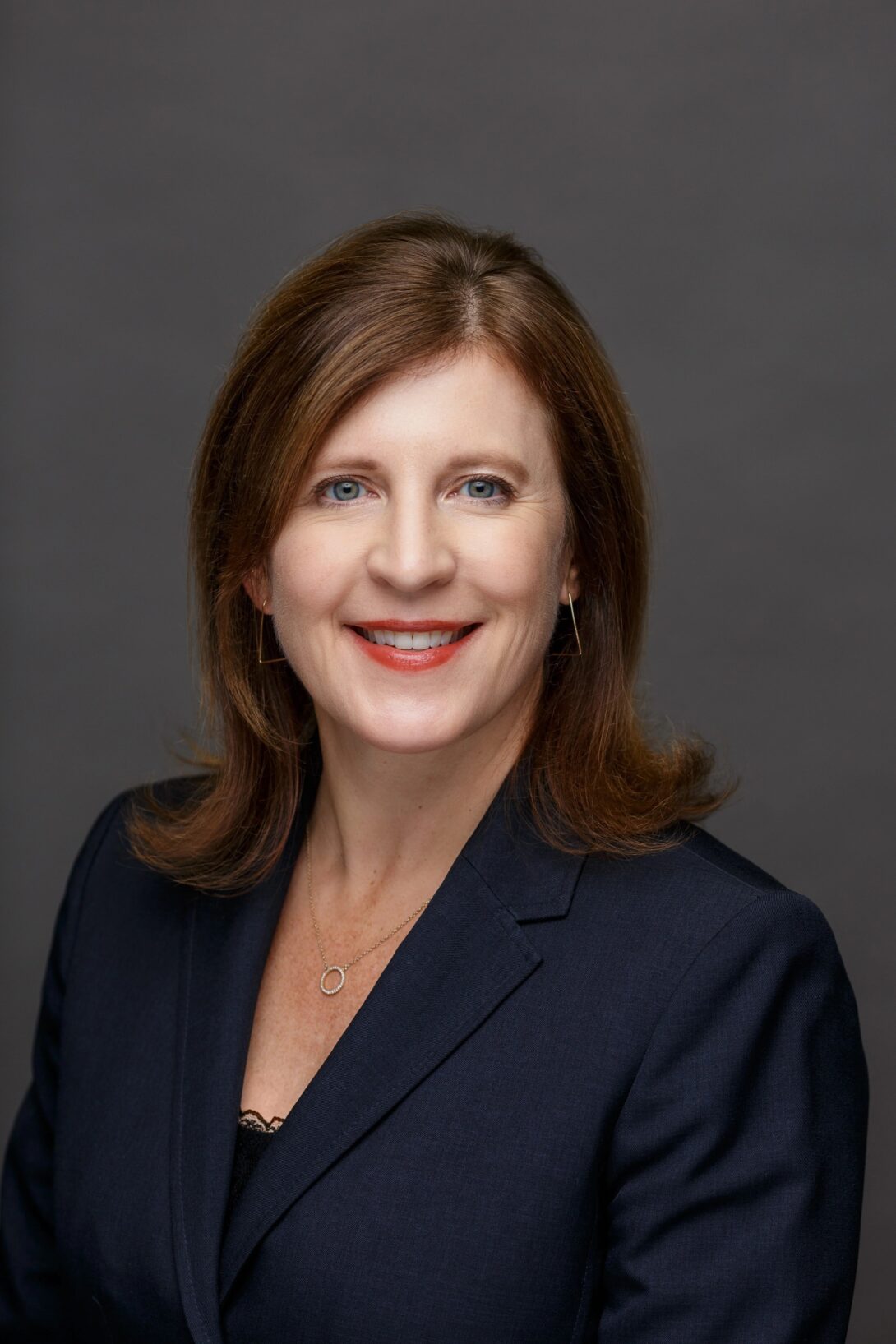
Head, Department of Medicine
Bio: Rachel Caskey, MD, MAPP, is professor and head of the department of medicine. She is a national leader in the field of maternal child health from both a clinical and research standpoint. She combines her clinical interest in women’s health with her public health interest in population health to develop a research platform focused on health care delivery through scalable interventions. She is a health services researcher focused on novel system-level changes to health care settings to improve outcomes for women and children; with an emphasis on improving access to care for postpartum women and reducing maternal morbidity and mortality. She is principal investigator on several federally funded grants. Education and mentorship are a core pillar of her career. She co-leads the NIH-funded Precision Lifestyle Medicine and Translation Research (PREMIER) T32 postdoctoral training program and mentors junior faculty and trainees of all levels. She has received several awards for her teaching and mentorship. Caskey partners with the Chicago Department of Public Health and Illinois Department of Public Health on several large research and public health programing efforts. Finally, she has been invited to sit on several citywide and statewide task forces targeting health disparities and prevention activities.
Presentation title: Maternal Health Research Center of Excellence
Abstract: The UIC Maternal Health Research Center of Excellence will advance maternal health research by examining the mechanisms by which structural racism contributes to maternal health disparities and develop innovative strategies to reduce maternal morbidity and mortality and promote maternal health equity in partnership with Illinois communities. The center will build on a strong foundation of research, clinical care, training and community collaboration to improve maternal health outcomes across Chicago and Illinois and disseminate innovations that can be adopted across the country. The Center convenes transdisciplinary investigators and leaders with expertise in 14 academic disciplines.
Our team embodies decades of maternal health expertise in research, education and community partnership, including several pioneers in the field of maternal health. The center is expected to develop an infrastructure to train maternal health researchers, integrate community participation and all aspects of the center and produce new evidence that will change maternal health outcomes. To disrupt the effects of systemic racism, we will development of new theoretical models, improved data analytics, identifying multilevel mechanisms that contribute to poor health, and strengthening maternal care by addressing multiple levels (i.e., physical, behavioral, social and economic) to improve well-being among postpartum people in Illinois.
Jason Chen Heading link

Associate Professor, College of Business Administration
Bielinski Family Faculty Scholar
Bio: Chen’s research interests and body of work primarily relate to understanding the valuation implications and the market pricing of accounting information. Much of his work focuses on understanding the information content and impact of qualitative accounting disclosures as well as accounting earnings quality. He also has highly cited research examining companies’ internal workings, specifically managerial cost decisions. His studies use methodologies developed in empirical accounting/finance research, computer science and linguistics.
His research has been presented at numerous universities within the U.S. and abroad, as well as to the Financial Accounting Standards Board. While at UIC, he has published eight studies in highly regarded peer-reviewed journals, including the Journal of Accounting Research, Journal of Accounting and Economics, Review of Accounting Studies and Management Science. The study titled “Disclosure Prominence and the Quality of Non-GAAP Earnings” received the recognition of Wiley Top Cited Article 2021-22. He has also served as a reviewer for top journals in the field, such as The Accounting Review, Review of Accounting Studies and Contemporary Accounting Research. He has received excellence in reviewing rewards from the American Accounting Association Financial Accounting and Reporting Section five times. He was named a Bielinski Family Faculty Scholar at UIC Business.
Presentation title: Using Textual Analysis to Further our Understanding of Financial Reporting
Bio: Accounting research has traditionally focused on exploring and understanding the implications and impact of accounting numbers. However, most information available about firms is not numbers but rather qualitative in nature, i.e., textual. Until recently, examining textual information has been challenging due to its inherent unstructured nature. Recent advances in computer power and textual analysis techniques have made it possible to analyze such information. Some recently published works highlight the power and insights drawn from qualitative accounting information, helping us better understand the information environment of companies and shaping our understanding of financial markets. These studies include showing the impact of qualitative prominence on financial markets, shedding new light on earnings quality through understanding discussions in the footnotes to financial statements, and examining the content and impact of earnings conference calls, a previously unexplored but highly public and vital channel through which managers communicate with financial markets.
Joshua Drucker Heading link
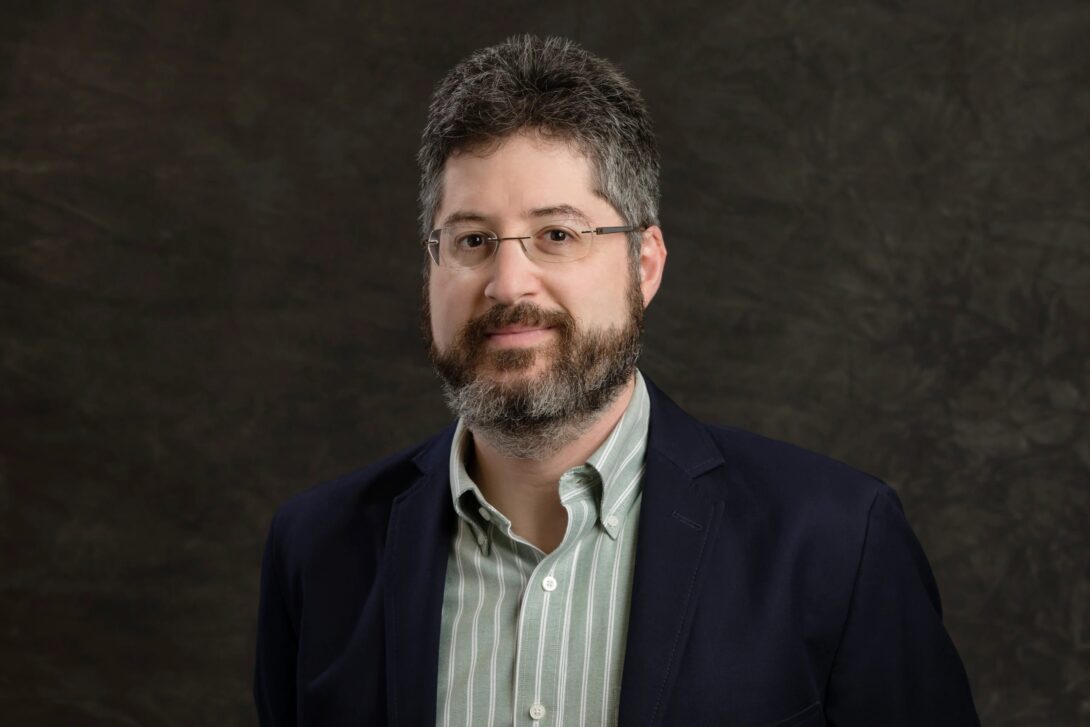
Associate Professor of Urban Planning and Policy
Bio: Joshua Drucker is associate professor of urban planning and policy. His research aims toward better understanding processes of local and regional economic development and transformation. He studies innovation and entrepreneurship, particularly the ways in which these activities influence regional economic trajectories and how they may be supported and leveraged through public policy actions. He researches local government finance, industrial structure, agglomeration, technology-based economic development and anchor institutions, among other topics. Drucker’s teaching encompasses regional economic theory, economic development policy, economic information and analysis and professional planning analysis methods. Drucker is a faculty adviser for the UIC Government Finance Research Center, an affiliate of the Voorhees Center for Neighborhood and Community Development and a member of the Fiscal and Economic Policy Group of the Institute of Government and Public Affairs. He joined UIC in 2008 after earning a bachelor’s in mathematics and economics from the University of Michigan and a master’s in regional planning and PhD in city and regional planning from the University of North Carolina at Chapel Hill.
Presentation title: Innovation Districts as an Economic Development Strategy: For What and For Whom?
Abstract: Innovation districts are an economic development approach that has spread rapidly across the United States during the last 15 to 20 years. They can be defined as spatially-delineated regions, usually located in urban areas, which are designed to foster innovation through policies and programs to actively promote research and entrepreneurship and through characteristics of the built environment that are attractive to innovators and workers in innovation-intensive industries. As innovation districts have become more popular, they increasingly have been touted as a way to advance inclusive economic development, bringing investment and income to disadvantaged locations and helping to revitalize struggling communities. Are innovation districts an appropriate policy for accomplishing both innovation and socially-inclusive economic development?
With two colleagues, I conducted an empirical study of innovation districts, supported by a research grant from the Ewing Marion Kauffman Foundation. We reviewed the diversity of innovation districts nationwide and conducted in-depth investigations of the approaches, implementation and accomplishments of four innovation districts. We selected these four case studies, located in Boston, Detroit, Saint Louis and San Diego, based upon the variation they offered in terms of geographic location, regional economic setting, organizational structure and the ways in which anchor institutions and the public sector were involved.
We found that there are particular factors that contribute to the success of an innovation district in generating innovation-based economic activity and development. Among these factors are cohesive and effective leadership, sufficient financial resources and a development strategy and pace that align with the nature of the surrounding real estate market. We also found that the features of innovation districts designed to yield innovative activity generally are not conducive to socially-inclusive economic development. Stimulating innovation necessarily involves prioritizing entrepreneurs and high-skilled workers. Innovation districts attract new residents and commuters from outside the local area, increase land and housing costs, and produce relatively few jobs and career opportunities that are accessible to existing residents. The innovation district we studied in Detroit has turned away from concentrating exclusively on innovation in order to better serve a neighborhood development function through locally-focused entrepreneurship and advancement of opportunities accessible to the wider community.
If planned and implemented well, innovation districts have the potential to deliver on their original promise of innovation-based economic development. They are not as well-suited to provide inclusive community economic development.
Mohammed Elnagar, DDS, MS, PhD Heading link
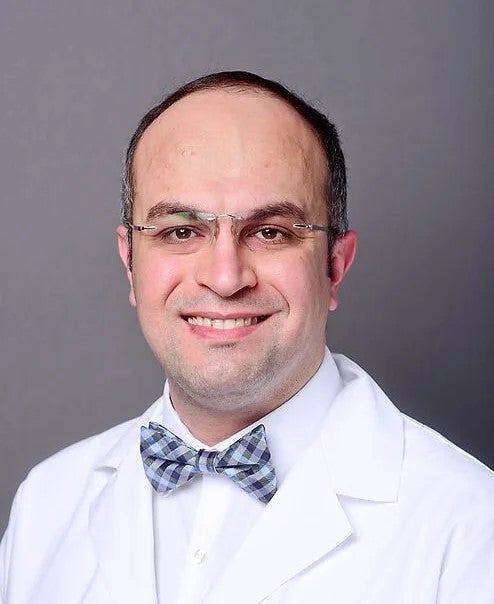
Associate Professor, College of Dentistry
Bio: Dr. Mohammed Elnagar is an associate professor in the UIC Department of Orthodontics. He completed a joint PhD program and orthodontics specialty training at UIC. Additionally, he holds a certificate in artificial intelligence applications in health care from the Massachusetts Institute of Technology. Elnagar practices orthodontics in Chicago, focusing on digital orthodontics, dentofacial orthopedics with skeletal anchorage and surgical orthodontics. He is widely published and recognized as a national and international speaker. Furthermore, he serves as the director of the Digital and AI Laboratory at UIC Orthodontics and has received multiple national awards for his contributions to the field of AI. Most notably, in 2023, he was honored with the Burstone-Indiana Biomechanics Award for his work on emerging technologies and was designated as a Burstone Fellow in Biomechanics.
Presentation title: Embracing the Future: Orthodontics and Oral Healthcare Revolutionized by Artificial Intelligence
Abstract: Artificial intelligence is transforming orthodontics and oral health care, opening new frontiers in diagnosis, treatment planning and patient care. The rapid advancements in AI technology offer unprecedented opportunities to enhance precision, efficiency and outcomes across the dental profession. Over the past six years, my work has focused on developing and implementing AI-driven solutions to revolutionize orthodontic care, including AI-assisted medical imaging for more accurate diagnoses, personalized treatment planning and digital appliance design. Additionally, AI-powered systems are enabling real-time monitoring of treatment progress and more accurate assessments of outcomes. This presentation will explore how these innovations are shaping the future of orthodontics and oral health care, providing a glimpse into a new era of smarter, more effective clinical practices.
Andrew Foell Heading link
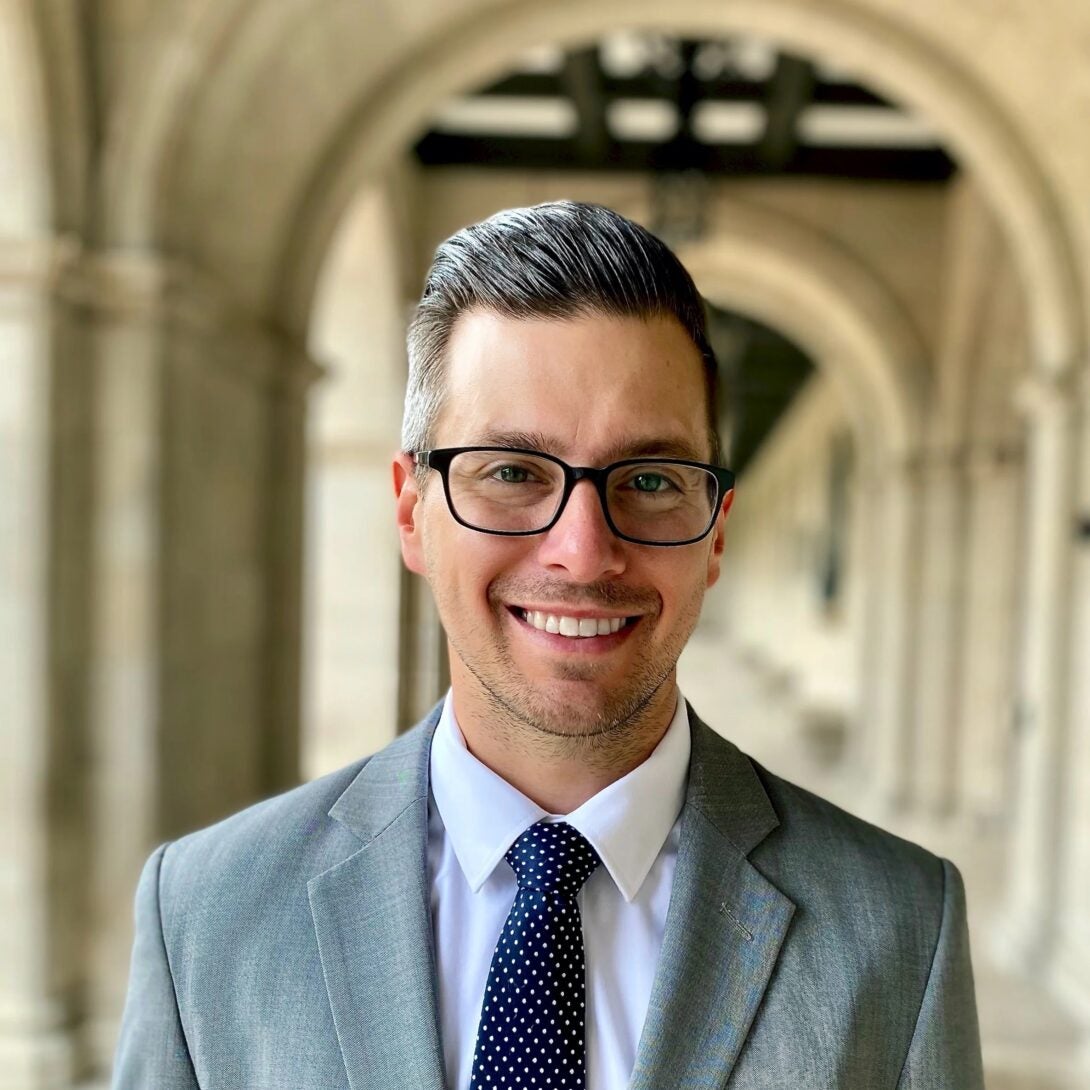
Assistant Professor, Jane Addams College of Social Work
Bio: Andrew Foell, PhD, is an assistant professor at the Jane Addams College of Social Work and a Faculty Fellow at the Institute for Research on Race and Public Policy at the University of Illinois Chicago. Foell’s mixed-methods and community-engaged research focuses on the impact of housing and community development policy on the health of marginalized families, with an emphasis on interventions for low-income families living in U.S. public housing and other hard-to-house populations. His current research projects include examining housing and health equity among families impacted by federal housing and community development policies, including the U.S. Department of Housing and Urban Development Choice Neighborhoods Initiative, Family Unification Program and Healthy Homes Program. Foell is also the lead evaluator for the Illinois Department of Human Services Permanent Supportive Housing Program, which provides permanent supportive housing to families at risk of homelessness. Foell is a first-generation college graduate and received his Associate of Arts from Ozarks Technical Community College, Bachelor of Social Work from Missouri State University, Master of Social Work and Public Policy from the University of Minnesota and Doctor of Philosophy in Social Work from Washington University in St. Louis.
Presentation title: Expanding Choice and Opportunity: Advancing Housing and Health Equity in Public Housing
Abstract: Public housing offers a critical safety net to over 1.6 million low-income residents in the United States by providing safe, affordable, and stable housing. However, recent estimates indicate that a sizable proportion of public housing units – 8% of all public housing or about 93,000 units – received failing housing quality scores and required significant repair to maintain health-supportive benefits for residents. The public housing program faces a substantial backlog for necessary repairs, with estimates suggesting a roughly $70 billion shortage in necessary funding to address housing quality issues. These housing quality concerns disproportionately impact people of color, who make up the majority of public housing residents, along with other marginalized and vulnerable groups including older adults, people with disabilities and children. In response, the U.S. Department of Housing and Urban Development has invested billions of dollars in redeveloping public housing through mixed-income initiatives through programs like the Housing Opportunities for People Everywhere Program and the Choice Neighborhoods Initiative. These comprehensive interventions target distressed public housing for redevelopment while providing people-based programs and services, including case management and support services and neighborhood-based investments to support resident self-sufficiency and health. In this SparkTalk, Foell discusses his collaborative and interdisciplinary research on the dynamics of mixed-income initiatives, with an emphasis on current projects that examine intersections between housing, neighborhoods and resident health.
Tamar Heller, PhD Heading link
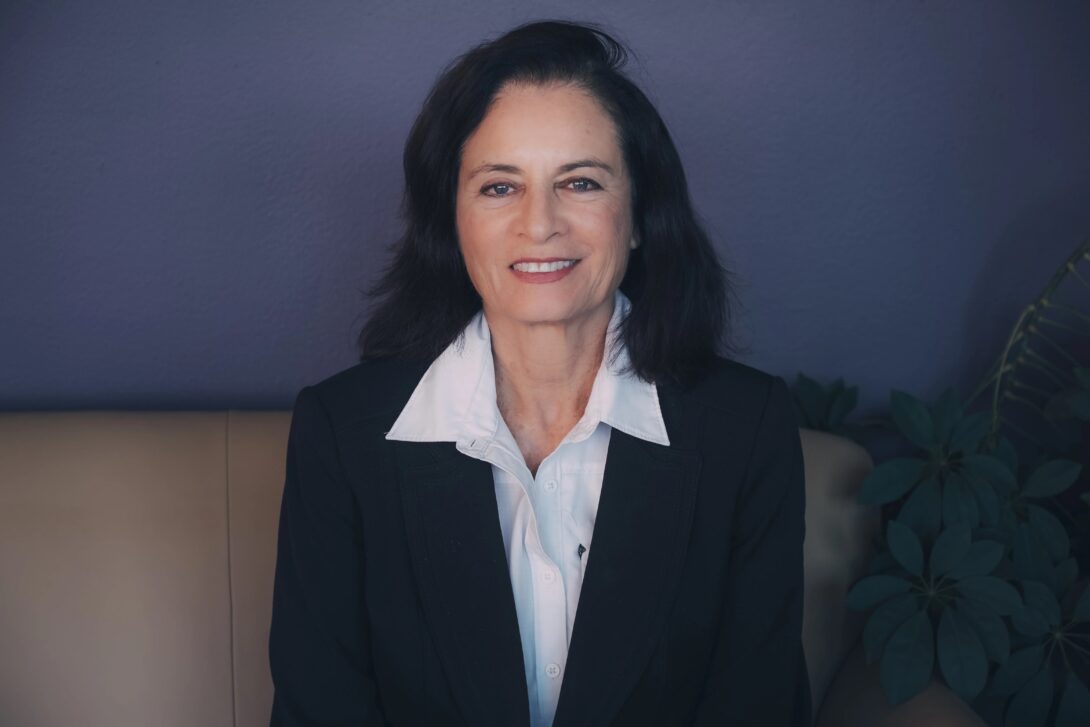
Distinguished Professor
Director of the Institute on Disability and Human Development
Bio: Tamar Heller, PhD, distinguished professor in the UIC Department of Disability and Human Development, directs the Institute on Disability and Human Development and is co-principal Investigator of the Rehabilitation Research and Training Center on Family Support. She has directed DHD, the RRTC on Developmental Disabilities and Health, RRTC on Developmental Disabilities and Aging, and the RRTC on Family Support. Her research focuses on self-directed and family support, long-term services and support, and bridging aging and disabilities. Heller has written over 260 publications, including six books. She is past board President of the Association of University Centers on Disabilities, served on the Executive Council of the International Association for the Scientific Study of Intellectual and Developmental Disabilities and is a co-founder of the national Sibling Leadership Network and the Bridging Aging and Disability International. Her awards include the 2009 Autism Ally for Public Policy Award of The Arc/TAP of Illinois; 2008 Lifetime Research Achievement Award, IASSIDD Special Interest Group on Aging and Intellectual Disabilities; 2009 Community Partner Award of Community Support Services, 2010 Outstanding Researcher Award in the UIC College of Applied Health Sciences, and the 2012 International Award of the AUCD.
Presentation title: Who will take care of Ray?
Abstract: Most adults with intellectual and developmental disabilities live with their families, most often parents. Despite concerns about the future and their ability to provide care for their relative as they age, many of these families have not made concrete plans. Key aspects of future planning include financial plans and benefits, living arrangements, vocational preferences, decision-making supports and healthy aging. Also, some families make plans that could jeopardize their relatives’ government benefits or deprive them of their rights. Often families from minoritized racial/ethnic backgrounds are less tied to the service system and less likely to have formalized plans for their relative with intellectual and developmental disabilities. Key obstacles include mistrust of the service system, legal costs, emotional barriers to thinking about mortality and informational barriers. Further, among the families who do make plans, the individual with disabilities is seldom involved in the planning process.
Through support from the National Institute on Disability, Independent Living and Rehabilitation Research, we developed an evidence-based intervention, The Future is Now: A Future Planning Training Curriculum for Families and Their Adult Relatives with Developmental Disabilities. It integrates both a person- and family-centered approach within the context of the community and the supports and services available or needed. The Future is Now uses a community-based participatory approach involving people with disabilities and families in all research stages. Core features include: information on future planning, peer-to-peer support and inclusion of individuals with disabilities, siblings and other family members. The intervention combines both didactic information sessions with peer-to-peer support which assist families to both overcome emotional barriers and build feelings of mastery. This intervention targets the entire family unit to develop goals and action plans for the future.
The Future Is Now was first tested with a randomized pre-test and one-year post-test design, resulted in families taking concrete steps in planning, decreased caregiver burden and increased involvement and choice-making of adults with intellectual and developmental disabilities. The in-person intervention was conducted with hundreds of families nationally and internationally and received the NAC Caregiving Innovative Program Award. One day train-the-trainer sessions with 79 professionals in three states through the Arc of U.S. indicated that training participants had increased confidence in helping families plan. Also, these trainers then took action by providing future planning training to 323 families.
We have developed and pilot tested an online version called the Virtual Future is Now and have recently received renewed funding to develop and rigorously test the efficacy of this online train-the trainer as part of the new National Institute on Disability, Independent Living, and Rehabilitation Research-funded Family Support Research and Training Center. We propose to scale up the intervention by comparing outcomes of a virtual train-the trainer approach with Area Agencies on Aging using the Virtual Future is Now with a control group of families who do not receive the training. We will further scale-up the Virtual Future is Now by providing virtual train-the trainer sessions to professionals nationally through our collaborators USAging, The Arc, Association of University Centers on Disabilities, National Association of Councils on Developmental Disabilities, Sibling Leadership Network and Self-Advocates Becoming Empowered.
Rosalba (Rose) Hernandez Heading link
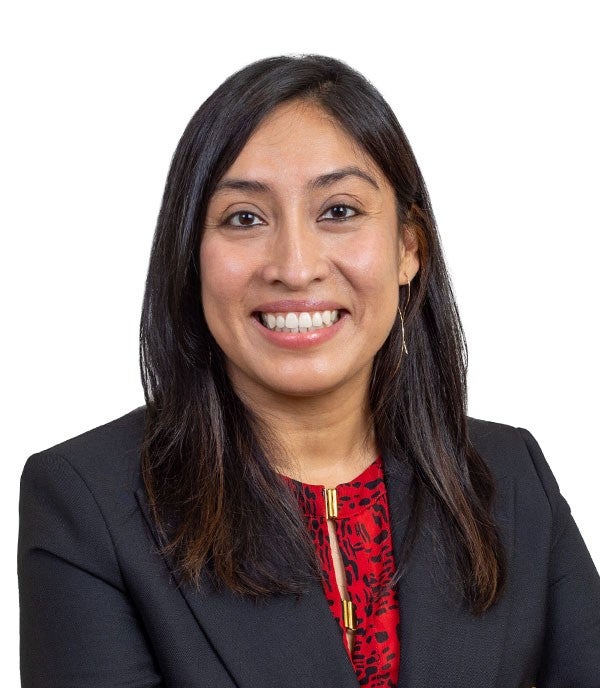
Associate Professor, College of Nursing
Associate Dean for Equity and Inclusion
Bio: The daughter of Mexican immigrants, Rosalba “Rose” Hernandez grew up in Chicago and was introduced to higher education through UIC’s Urban Health Program. She is a three-time graduate of UIC, receiving her PhD from the School of Public Health in 2012. After completing her doctorate, she pursued a two-year post-doctoral fellowship in cardiovascular epidemiology at Northwestern University. Currently, Hernandez is the associate dean for equity and inclusion and an associate professor in the College of Nursing. Her research focuses on the link between psychological well-being (e.g., optimism, positive affect) and cardiovascular health, particularly in underserved populations. She explores how characteristics like optimism and resilience relate to cardiovascular disease profiles and whether interventions to increase psychological well-being can impact disease manifestations. Hernandez is currently funded by several national institutes and foundations, and she is actively involved in the American Heart Association, where she is co-chair of the Psychological Health and Well-being Committee within the Council on Stroke. In her role as associate dean, Hernandez aims to build on existing programs at UIC Nursing to create an inclusive environment for students, faculty and staff. She encourages students to embrace campus diversity as valuable preparation for their nursing careers.
Presentation title: Virtual Reality: A Dual Lens for Healing Hearts and Opening Minds in Nursing
Abstract: This presentation highlights the innovative use of virtual reality technology to enhance emotional well-being in clinical populations and promote diversity, equity and inclusion in health care. Hernandez shares insights from her research on VR’s potential to transform patient care and professional development in nursing. The first segment delves into VR applications for emotional support in patients with end-stage kidney disease and lung cancer, drawing on Hernandez’s extensive work connecting psychological well-being to cardiovascular health, especially in underserved communities.
Drawing on her National Institute of Diabetes and Digestive and Kidney Diseases-funded research, Hernandez’s presentation showcases VR as a novel tool for delivering behavioral health interventions to patients with chronic conditions, such as those undergoing hemodialysis. She will cover end-user perceptions, safety considerations and VR’s potential to enhance patient outcomes by fostering positive psychological states linked to improved health behaviors and outcomes in chronic illness.
The second segment shifts to VR’s role in promoting diversity, equity, and inclusion in nursing education and practice. Hernandez will discuss how VR can simulate diverse patient interactions, cultural humility training and bias-awareness exercises, equipping nursing students and professionals to serve diverse populations. This immersive approach offers experiential learning to challenge biases and enhance cultural sensitivity.
Hernandez will underscore VR’s dual role in nursing — as a therapeutic tool for patients and an educational resource for DEI training — closing with insights into future research, implementation strategies, and VR’s potential to transform patient care and create a more inclusive healthcare environment.
Rosilie Hernández Heading link
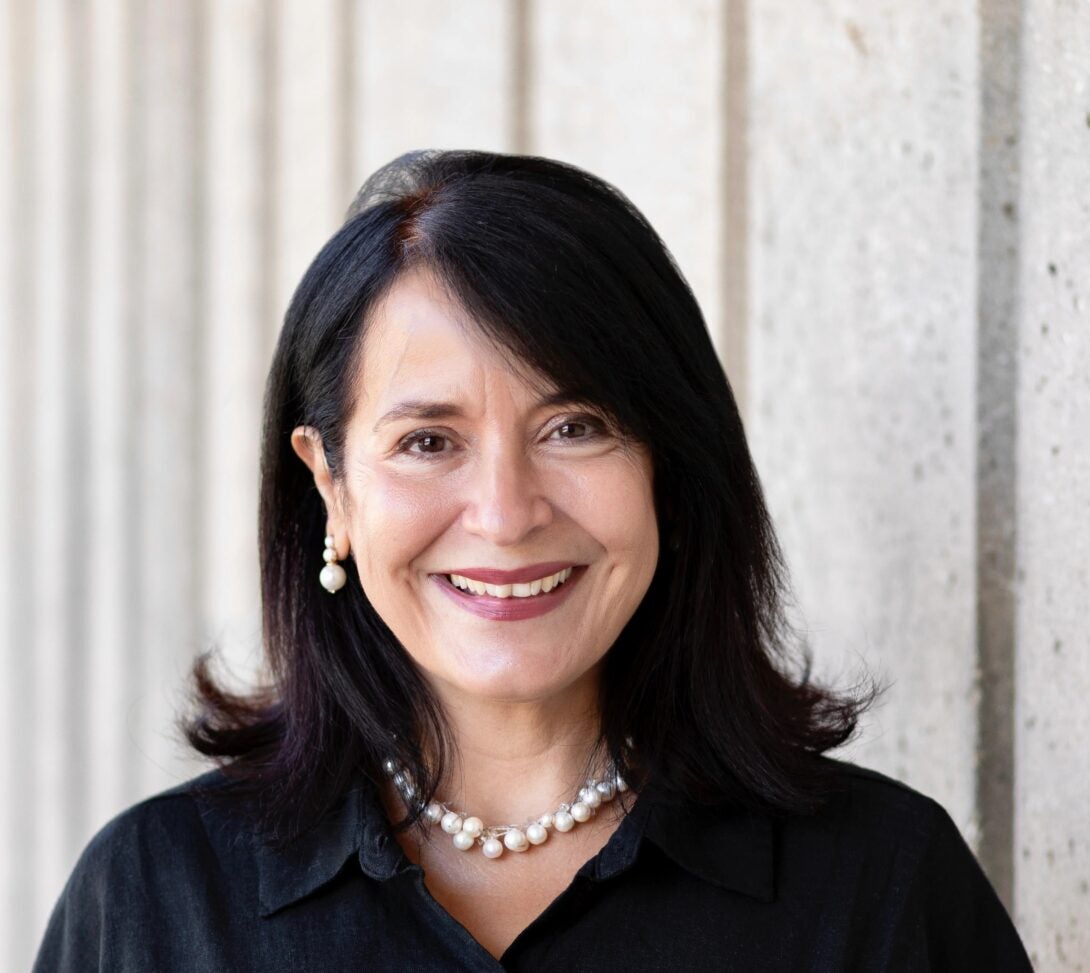
Professor of Hispanic Studies
LAS Associate Dean for Student Academic Affairs
Bio: Rosilie Hernández is a professor of Hispanic studies at UIC. She authored “Bucolic Metaphors: History, Subjectivity, and Gender in the Early Modern Spanish Pastoral” (2006) and “Immaculate Conceptions: The Power of the Religious Imagination in Early Modern Spain” (2019). In addition to numerous single-authored articles and volume chapters, she co-edited Disciplines on the Line: Feminist Research on Spanish, Latin American, and U.S. Latina Women (2003) and Women’s Literacy in Early Modern Spain and the New World (2011).
As associate dean, she oversees curricular policy, student success programs and inclusive equity initiatives. In the past seven years, she has managed the implementation of over 200 curricular proposals, including cross-college majors such as the Computer Science Plus programs. In 2019, she founded First-at-LAS, an academic success program for first-generation students. First-at-LAS has since garnered over $650,000 in donor support and has served hundreds of students and faculty. Hernández also administers the LAS Undergraduate Research Initiative and has focused on growing the number of first-generation and minoritized students who embark on transformative research experiences.
Presentation title: First-at-LAS Academic Success Program
Abstract: In November 2019, the College of Liberal Arts and Sciences launched the First-at-LAS Academic Success Program to support first-generation college students. Designed to promote academic success both in and outside the classroom, First-at-LAS reflects the college’s deep-seated commitment to serve first-generation college students and aligns with the university’s mission to enroll, retain and graduate a diverse student body. Beyond celebrating first-gen student identity, the program’s overarching goal is to generate and sustain a holistic LAS college culture committed to removing barriers to academic and future professional success for first-generation students.
First-at-LAS cultivates strong student outcomes and nurtures post-grad readiness through innovative programs guided by data, research and strategic collaborations with LAS faculty, academic advisors, career coaches and philanthropic foundations. The program focuses on:
- Enabling positive first-generation student identification and a sense of belonging.
- Educating faculty, advisors and staff on the assets and needs of first-generation students.
- Offering students academic skills training to meet the demands of an LAS education.
- Coaching faculty on inclusive teaching and growth mindset strategies.
- Strengthening student connection and mentorship relationships with LAS faculty.
- Educating first-gen students on the connection between their specific strengths and interests, the LAS majors that correlate to those strengths and interests, and the competencies and skills developed across the LAS curriculum that lead to academic and future professional success.
- Informing first-generation parents on the value of a liberal arts and sciences education and how they can best support their students’ academic and personal journey.
- Guiding students to embrace campus engagement, seek experiential learning and build a strong support network.
The program’s success has largely depended on instituting initiatives at scale. For example, for the past five years, the First-at-LAS Faculty Fellows donor-supported program has sponsored faculty teaching highly enrolled gateway courses. Expert faculty and academic affairs staff guide and facilitate needed resources for the Fellows, who closely examine their teaching practices and transform their assumptions on first-generation student success through equity-minded, data-driven approaches. Not surprisingly, the fellows report their findings and outcomes to their home units, facilitating conversations and championing effective inclusive strategies across all levels of instruction. Although first-generation students are largely unaware of the program, the work of the faculty fellows has been pivotal in lowering drop, fail or withdraw rates and transforming fundamental gateway courses away from a “weeding out” mentality and toward an equitable instructional culture centered on student success.
Moreover, First-at-LAS student-facing initiatives have intentionally sought to build a strong bridge between academic skills training, major fit, research readiness and a holistic approach to developing a professional identity. Two initiatives anchored in this philosophy are the Become Research Ready Program, which promotes the academic and career development value of research experiences, and the Chicago-Community Trust-funded Become a Strategic Learning Program, which facilitates early academic skills and professional development training to LAS first-year first-gen and minoritized students at scale.
Through this work, First-at-LAS is raising LAS’s profile as a leader in the first-generation student conversation and serving as a model for peer higher education institutions.
Yuheng Hu, PhD Heading link

Associate Professor, College of Business Administration
Bio: Yuheng Hu is an associate professor in the UIC Department of Information and Decision Sciences in the College of Business Administration. Before joining UIC in 2015, he was a researcher at IBM Research AI lab. He earned his PhD in computer science from Arizona State University in 2014. His research interests lie at the intersection of machine learning, generative AI, human-AI interaction and digital platforms. His work has been published in top business analytics and computer science venues, winning nine Best Paper awards and nominations. His research has also received numerous media coverage from ABC News, PBS, Yahoo News, among others. At UIC, he teaches courses on Generative AI, big data analytics, text mining and social computing and has won multiple teaching awards, including the 2024 Teaching Recognition Program award.
Presentation title: Empowering Future Business Leaders and Disruptors with Generative AI
Abstract: Generative AI is transforming industries by driving unprecedented automation and innovation. My work centers on preparing the next generation of business leaders to understand and leverage technologies like GPT models and diffusion techniques. Through my teaching and research, I equip students and professionals with the skills to integrate AI into decision-making, optimize operations, and unlock new opportunities for value creation. By combining theoretical foundations with hands-on experimentation and real-world case studies, my approach ensures practical application and strategic advantage across sectors like marketing and finance. I also address key challenges in generative AI, including AI bias and responsible deployment. In this SparkTalk, I’ll explore how Generative AI empowers businesses to navigate challenges and seize opportunities, fostering a new wave of leadership in an AI-driven world.
Marisha Humphries, PhD Heading link
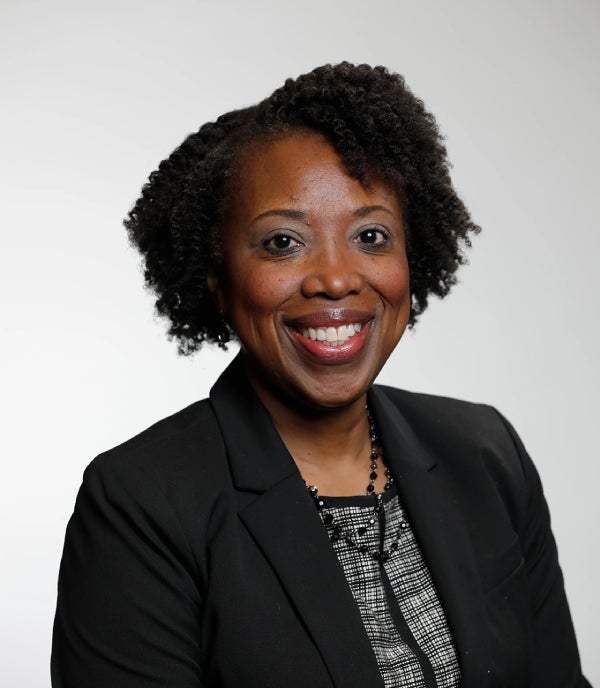
Associate Professor, Educational Psychology
Bio: Marisha L. Humphries is an associate professor and licensed clinical psychologist who engages in developmental and prevention science research that takes an integrated approach to studying African American children’s normative and prosocial development. Specifically, her work examines African American children’s emotional and social competence, and the ways in which schools can support this development by facilitating equitable learning environments. Her work has led to the development of professional learning for pre-service teachers and school principals in transformative social and emotional learning. She has engaged with university faculty to facilitate their learning regarding the connection between social and emotional competence, diversity and learning in university classrooms. She is also the co-director of the Great First Eight curriculum: a research-based and standards-aligned early childhood, open educational resource, project-based learning curriculum. She is committed to engaging in work that acknowledges and supports the optimal development of children from historically underrepresented racial and ethnic backgrounds in spite of pervasive racial inequalities in our society.
Presentation title: Innovative Approaches to Helping Students See Themselves in Course Content
Abstract: Education should foster students’ personal and collective growth, along with their well-being. How can what and how faculty teach facilitate this growth? How can faculty teaching better position their students to address their personal concerns and interests? Research has shown that students engage more with course content that is relevant to their interests and experiences. Stated more simply, students learn content better when they see themselves in the course.
There are two constructs imperative to providing support for students to see themselves in course content: identity and belonging. Identity is how students view themselves including their membership in personal and social groups (e.g., race, ethnicity, age, SES, gender, religion, etc.). Deep learning occurs when a connection is made to learners’ identities. A student’s sense of belonging is centered on trust, feeling accepted, and connectedness. Creating a classroom environment where students feel safe to take risks in their learning and ask questions supports a sense of belonging. Many students at UIC are not just interested in learning course content to obtain a grade or earn a degree, rather many want to use their new knowledge and degrees to help create positive change in their communities. They want and need the space and support from faculty to make connections between what they are learning and real-world issues.
Course content that is reflective of students’ various identities and experiences, along with content that has real-world implications provides the necessary conditions for students to see themselves in courses. Therefore, it is imperative that faculty reflect on their teaching to determine whether and how students’ backgrounds and experiences are supported in their course. This SparkTalk will provide faculty with various approaches to help students make personal connections to course content to facilitate their deep learning and personal growth.
Amy Johnson Heading link
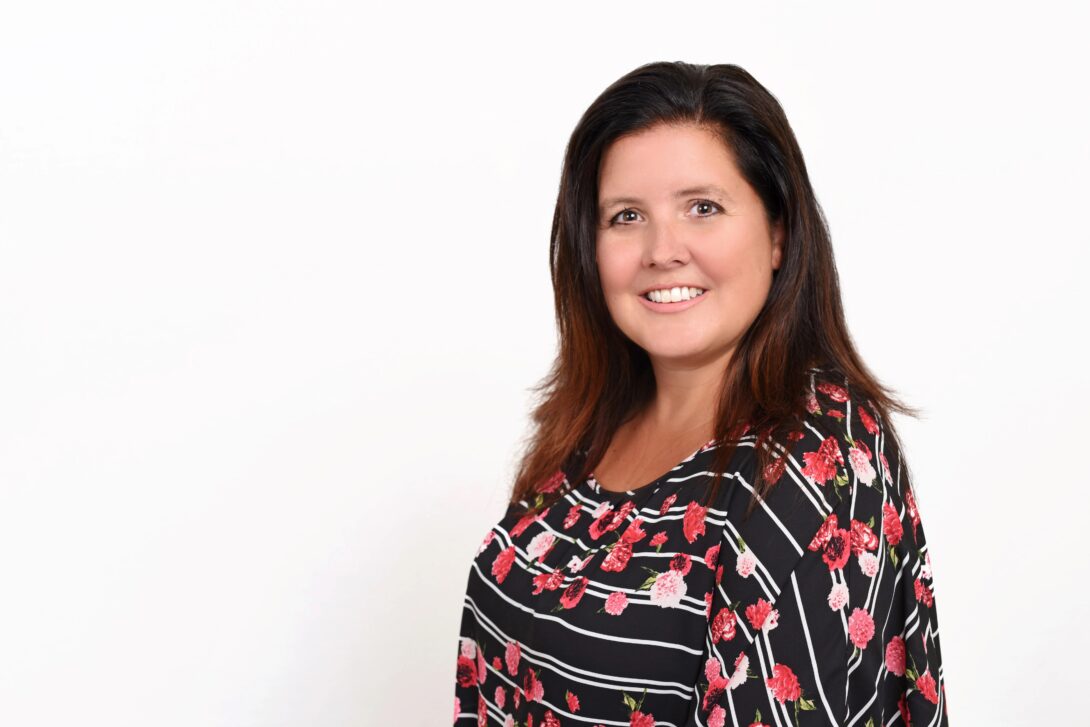
Clinical Assistant Professor, UIC College of Nursing
BSN Program Director
Bio: Amy Johnson has a broad background in nursing that spans inpatient care, community health and correctional health. In 2004, she earned her MS in Nursing, Community Health at Northern Illinois University, and in 2018, she earned her PhD in nursing at UIC. After 11 years at Northern Illinois University, she joined UIC College of Nursing in 2018.
She is a clinical assistant professor and the BSN program director for UIC College of Nursing. She has pursued her passion for improving the health and well-being of those incarcerated and maximizing the scope of RN practice. She founded two UI Health wellness clinics at two community correctional centers in Chicago where she maintains an RN-led practice. In addition, she works collaboratively with the centers to provide substance use treatment, including medication-assisted recovery for opioid and alcohol use.
To ensure that our UIC nursing students are prepared for their nursing courses and practice ready at graduation, Johnson and team secured a $150,000 grant from the Illinois Board of Higher Education to develop a Pre-licensure Readiness Education Program for Aspiring Registered NursEs (PREPARE). PREPARE is a summer readiness program that targets students’ foundational knowledge necessary for success in the nursing program. PREPARE was piloted in summer 2024.
Presentation title: Being Proactive: Pre-licensure Readiness Education Program for Aspiring Registered NursEs
Abstract: Re-imagining student success with a proactive approach before students take their first nursing course is critical for building a solid knowledge foundation. Despite meeting admission criteria, students struggle in their first semester of nursing courses. The impact of below-standard academic performance has far-reaching implications, such as students leaving the nursing program, retaking courses that delay graduation, negative impact on mental health and fewer student nurses graduating and entering the profession. Research shows that factors such as preadmission GPA, prerequisite science GPA, and the Test of Essential Academic Skills composite score are predictive of success in nursing programs. Additionally, knowledge in anatomy and physiology, math skills and reading comprehension also play key roles in determining success.
In Fall 2023, UIC’s Bachelor of Science in Nursing (BSN) cohort had 16 (13%) Health Assessment Exam 1 failures, 12 (10%) Foundations of Nursing Exam 1 failures and 30 (25%) Pathophysiology/Pharmacology Exam failures.Additionally, in the Fall 2023 Master of Science in Nursing, Graduate Entry cohort, there were 38 (64%) of students that earned failing grades on the first pathophysiology exam.
Our commitment to pre-licensure students (BSN and MSN-GE) begins at admission and the purpose of the Pre-licensure Readiness Education Program for Aspiring Registered NursEs (PREPARE) is to increase first-semester success and confidence that will lead to successful graduation and passing NCLEX on the first attempt. We piloted PREPARE in Summer 2024 for all admitted pre-licensure nursing students attending an institution with three regional campus locations.
PREPARE is a six-week online program with one in-person day; it includes a pre-assessment (TEAS Exam), an evidence-based program for content review (ATI LAUNCH) and faculty expertise on a variety of topics. Content focused on key predictors of success, including anatomy and physiology, math calculations, basic science, student success strategies, writing and language use.
Weekly assignments through ATI LAUNCH included quizzes, interactive learning modules, and reading materials. Real-time feedback was provided on the student’s performance and guided additional remediation as needed.
Two hundred and forty-two BSN and 80 MSN pre-licensure students took the TEAS exam and completed PREPARE. While total TEAS scores align with national score trends, it has revealed critical gaps in student knowledge. Students stated they did not realize their knowledge gaps until the program. As we await detailed end of first-semester performance outcomes, preliminary data showed that on two of the three first semester course exams, students performed better compared with last year. Anecdotally, faculty reported students were more prepared and communicated better. The preliminary findings highlight the importance of continuing and expanding the PREPARE program so we can enhance student academic readiness and establish PREPARE as a leading model for supporting student success in nursing education.
Dr. Tomer Kanan Heading link
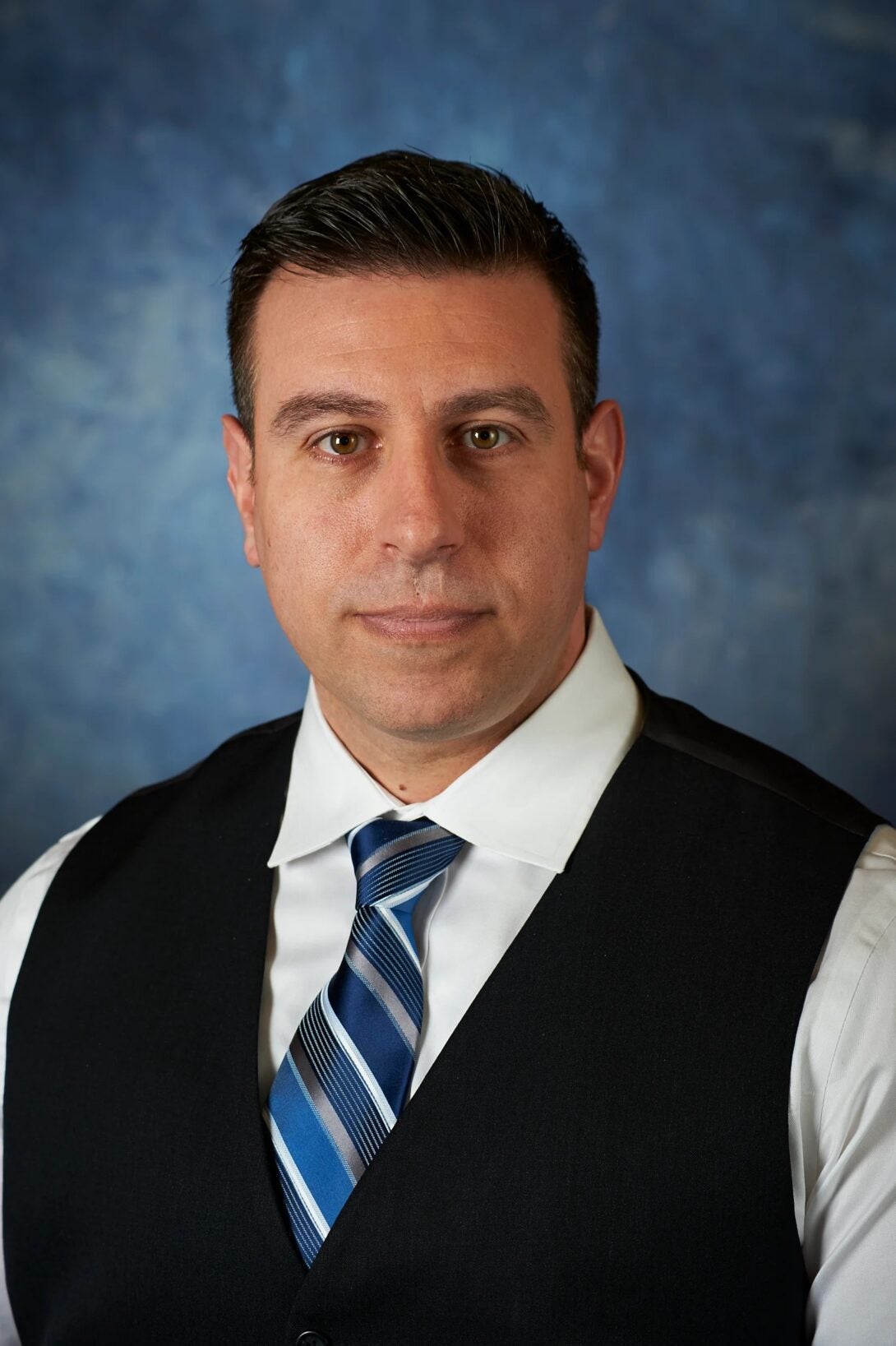
Clinical Assistant Professor, College of Applied Health Sciences
Bio: Tomer Kanan is a clinical assistant professor of anatomy and physiology and director of anatomy and physiology in the College of Applied Health Sciences. Kanan’s pedagogical focus is on delivering comprehensive, accessible instruction in human anatomy and physiology, creating an engaging student-centered learning environment, and ensuring students grasp and apply complex anatomical and physiological concepts in real-world health care settings. Kanan’s work focuses on integrating cutting-edge instructional technologies and pedagogical approaches to bridge the gap between theoretical knowledge and practical application. He is a recipient of the 2022 AHS Educator of the Year Award, the 2024 Excalibur Award for Teaching Excellence and the 2024 Silver Circle Award for Excellence in Teaching.
Presentation title: Revolutionizing Anatomy and Physiology Education: Introducing Innovative Tools
Abstract: D.O.C.T.O.R is a 3D web application developed to enhance anatomy teaching and learning. This platform features meticulously 3D-scanned anatomical models and cadavers. These high-resolution, interactive models provide a detailed and immersive experience, enabling students to explore complex structures with precision. With an emphasis on accessibility and user experience, the application features a streamlined interface, supporting voice input and output functionalities.
Offered at no cost to students, the platform provides a secure and innovative educational tool that fosters direct engagement with course materials.
Direct communication channels between students and the creators allow for continuous support and innovation, ensuring the application evolves to meet educational demands. This comprehensive tool aims to transform anatomy and physiology education by offering an interactive learning experience that bridges traditional and digital learning methods.
Sunyoung Kim Heading link
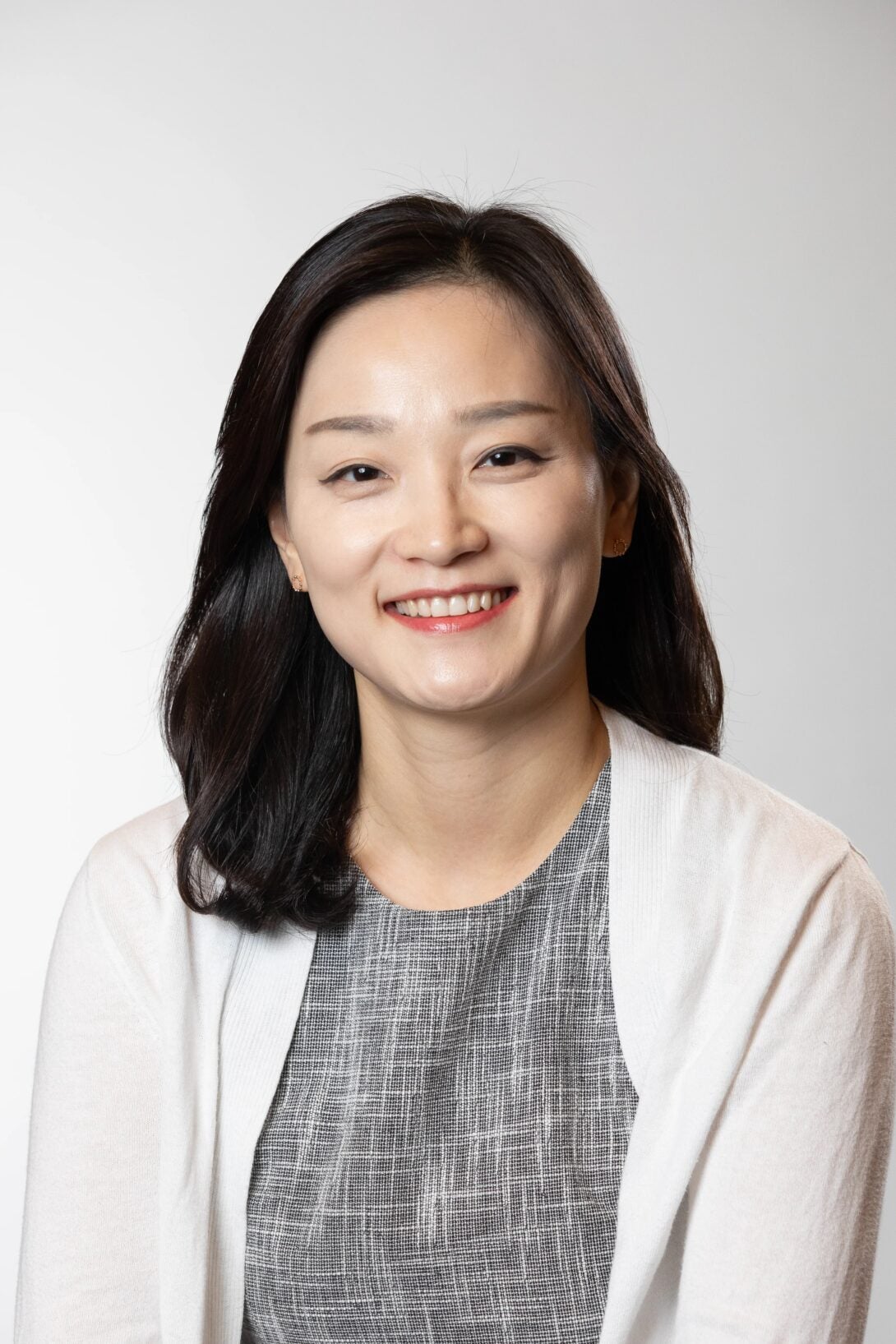
Associate Professor, Special Education
Bio: Sunyoung (Sunny) Kim is an associate professor of special education. Her primary research focuses on interventions for the social behaviors and peer relationships of students with autism and other developmental disabilities in inclusive environments, as well as qualitative examinations of cultural responsiveness in evidence-based interventions for children with disabilities and their families, including those from diverse racial, ethnic, and linguistic backgrounds. With support from the U.S. Department of Education, she initiated a fully funded master’s program in early childhood special education and is developing a new undergraduate program. She was selected as the recipient of the 2025 Early Career Award from the Division for Diverse Exceptional Learners of the Council for Exceptional Children.
Presentation title: The Power of Preparation: Training Teachers, Transforming Lives in Chicagoland
Abstract: Inclusive classrooms, where children with and without disabilities learn together, are essential in today’s diverse schools. However, many early childhood educators feel underprepared to meet the needs of all their students. In Chicagoland, where nearly 90% of students are racially diverse, 25% are English learners and 16% have educational support needs, this challenge is heightened by a shortage of early childhood special education teachers and limited training resources. In response, I collaborated with early childhood stakeholders to develop new, federally funded programs that prepare teachers to implement culturally responsive, evidence-based practices. These teacher preparation programs equip educators to create inclusive environments where all children can thrive. When teachers are well-prepared, children succeed, families become active partners and communities are strengthened. Through this work, I aim to ensure that inclusion is not just a legal requirement, but a commitment to helping every child reach their full potential.
Lisa Yun Lee Heading link
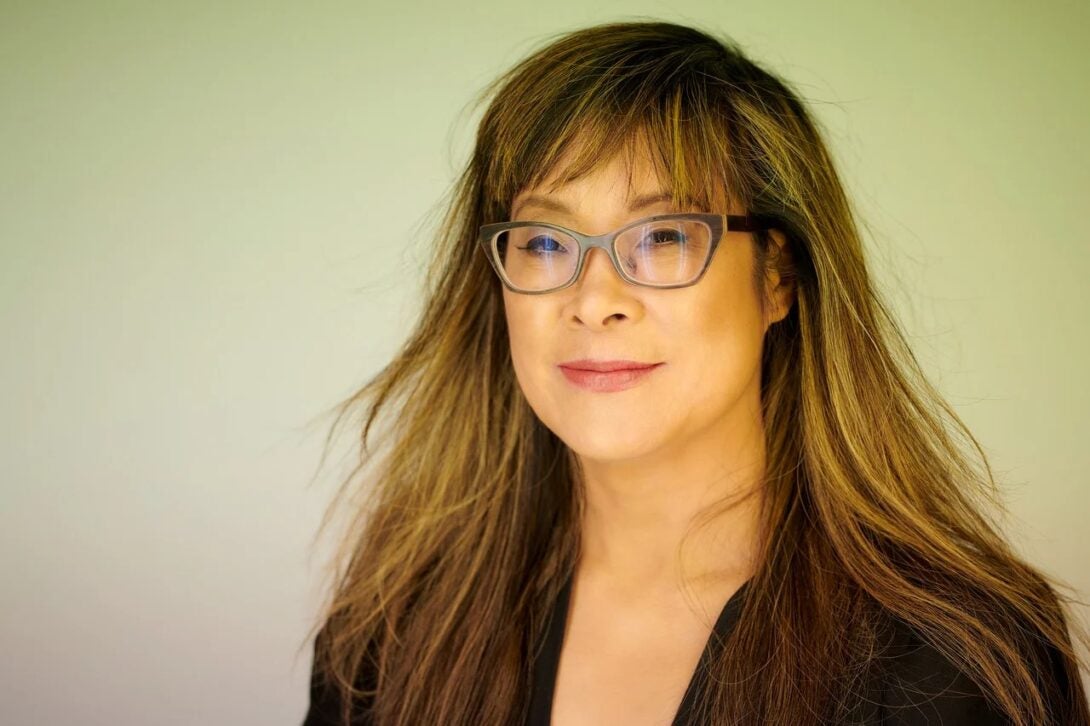
Associate Professor, School of Art and Art History
Bio: Lisa Yun Lee (BA, Bryn Mawr College, PhD, Duke University) is an associate professor of public culture and museum studies in the UIC School of Art and Art History. She is also the executive director of the National Public Housing Museum and a cultural activist who has taught classes at Stateville Prison with the Prison and Neighborhood Arts/Education Project, and a member of the Chicago Torture Justice Memorials. As the previous director of the Jane Addams Hull-House Museum, she oversaw a renovation of one of the most important historic sites in the U.S., and as the director of the UIC School of Art & Art History from 2010-17, she helped to found the Museum and Exhibition Studies Program, which is committed to social justice.
She has published articles about the democratization of historic preservation, museums as sites for civic engagement and radical democracy and the need for more public and affordable housing, and she has written a book about philosopher and cultural critic Theodor Adorno. She served on both Mayor Brandon Johnson and Mayor Lori Lightfoot’s Arts & Culture Transition Teams, and on the city of Chicago’s Commission for Monuments, Memorials, and Historical Reckoning. She was appointed to two terms by Governor Pritzker to the Board of the Illinois State Museum and currently serves on the Board of the Field Foundation and the American Association of State and Local Historic Sites.
Presentation title: The National Public Housing Museum: A Site of Conscience and a Call to Our Nation
Abstract: Lee shares the work she has been with public housing residents to open a museum in the last remaining building of the historic Jane Addams Homes with the mission to preserve, interpret and propel housing as a human right. The museum is a site of conscience, an African American historic site and a call to our nation to have a more inclusive foundation for the stories we preserve and share. Described by the Pulitzer Foundation as “the Museum of the Future,” the National Public Housing Museum includes the largest collection of oral histories of people who grew up in public housing, three restored apartments from several different generations of diverse public housing families, storytelling spaces to bridge the arts, culture and innovative public policy, an Empowerment Hub that includes a cooperative museum store owned in partnership with public housing residents, a cultural workforce training program to diversify the museum field, and contemporary art spaces and public art installations with internationally acclaimed artists. In a unique partnership with Related Midwest and the Chicago Housing Authority, the back of the building also includes 15 units of housing.
Antoniah Lewis-Reese Heading link

Senior Director of Strategic Initiatives, UIC School of Public Health
Bio: Antoniah Lewis-Reese holds a Masters in Business Administration from Roosevelt University and has worked at UIC for over 20 years in strategic management, process improvement and enhancing organizational effectiveness.
Over the course of her career, she has both facilitated and led programs and projects aimed at improving enterprise efficiency, transparency, engagement and communication across the disciplines of medicine, nursing and public health.
In her current role, she works across cross-functional teams to optimize institutional engagement in and execution of planning and change initiatives, as well as strategic marketing and communications efforts. In collaboration with internal and external stakeholders, she has successfully led strategic planning, institutional research, evaluation and compliance efforts.
Presentation title: Health in All Policies Illinois
Abstract: Co-led by the UIC School of Public Health and the Illinois Department of Public Health, the Health in All Policies Alliance works to facilitate cross-sector communication and work with policymakers and stakeholders to foster a culture of health equity that supports efforts to make Illinois the healthiest state in the nation. We do this by examining the health of the residents of the state of Illinois and making recommendations to the Illinois General Assembly improve and prevent threats to health through policy, practice and partnership.
The Health in All Policies Act (410 ILCS 155/10) identifies the following areas of focus for our work: access to safe and affordable housing; educational attainment; opportunities for employment; economic stability; inclusion; diversity and equity in the workplace; barriers to career success and promotion in the workplace; access to transportation and mobility; social justice; environmental factors; public safety, including the impact of crime, citizen unrest and the criminal justice system; and governmental policies that affect individuals who are in prison or released from prison.
Anna Lloyd Heading link
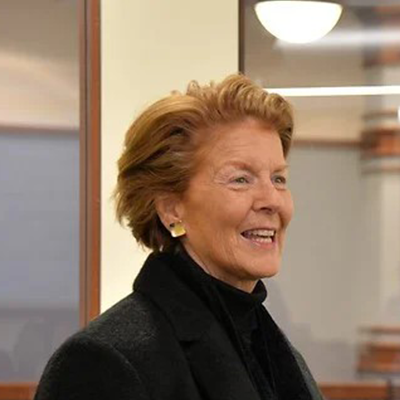
Professor, College of Business Administration
Bio: Anna Lloyd is a 30-year veteran of organization management and executive operations. Engaged in the integration of business objectives with social value creation, she currently instructs students at the College of Business Administration and the Liautaud School. Teaching civic engagement, global management, leadership and personal development, and social value collaborations among corporate and entrepreneurial enterprises, Lloyd’s commitment to UIC students and the increasing opportunity to have mission and impact in communities while making a profit attracts research and impact partners locally and around the globe.
Among her contributions and accomplishments, Lloyd has served as the founding executive director of the Center for Integrative Leadership, Carlson School, University of Minnesota; past president and executive director of the national women’s business organization, the Committee of 200 and the Committee of 200 Foundation; Ernst & Young’s Entrepreneurship Fellowships; and the New York City Financial Services organization, fostering both community economic development and strategic corporate partnerships; and has served on multiple Boards in NYC and Chicago, including Fierce Women of Faith, a Chicago based coalition to stop gun violence, the re-structuring of Public Narrative, founded to facilitate Chicago residents’ voices and to challenge the inequities of public health, education, and safety, and the federally funded and corporate collaborative Chicago Recovering Communities Coalition.
Lloyd holds an MAS in Public Policy and Administration from Hunter College, University of New York, a BS in Urban Planning from Boston University; and is a graduate of Harvard Business School’s executive education’s nonprofit management and owner/operator entrepreneurs’ programs.
Presentation title: Business Leadership Today: mission and money
Abstract: Our business students plan to make money while making a difference in our communities; training as entrepreneurs and corporate managers, students’ links to neighborhood organizations in Chicago result in servant leadership and financial growth among local retail leaders which readily translate into global entrepreneurship and corporate collaboration and employment.
Cecilia Macias Heading link
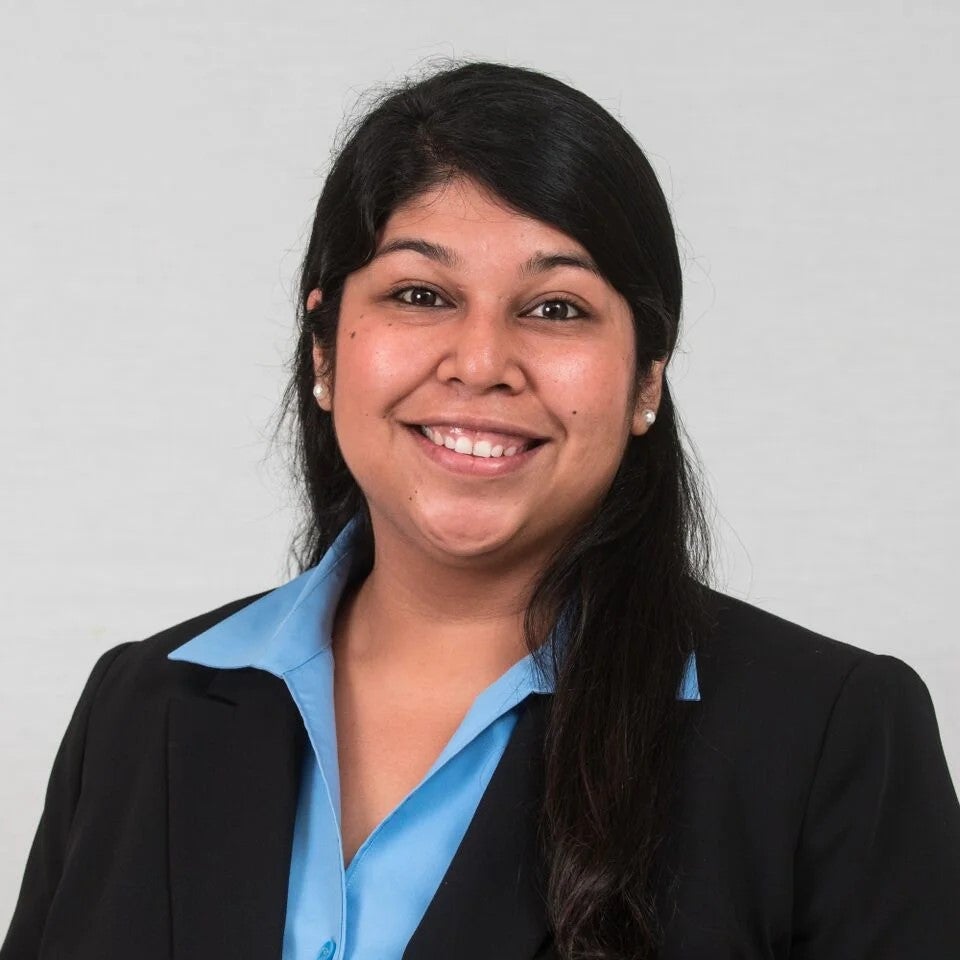
Director, Diversity, Equity, and Inclusion
Adjunct lecturer, School of Public Health
Bio: Cecilia O. Macias is an adjunct lecturer in the community health sciences division at the School of Public Health and the director of equity, diversity and inclusion in the Office of Diversity and Inclusion. Macias came to UIC in 2017 as the associate director for student success, leadership development and community engagement. Macias has been doing social justice, community engagement and leadership development work for over 13 years. She is passionate about education and has taught at various institutions, including Loyola University Chicago, Northeastern Illinois University, Taylor University, and Kodaikanal College in India. She holds a Master of Arts in student affairs administration in higher education from Ball State University and a Bachelor of Arts in communication from the University of Illinois Urbana-Champaign.
Presentation title: Reducing Barriers: Summer Programs for Academic and Professional Success
Abstract: The School of Public Health hosts several summer opportunities for incoming undergraduate and graduate students. One of these is the Office of Diversity and Inclusion Pre-Matriculation Program (PMP) for admitted graduate students. The goal of PMP is to strengthen the academic, professional and social skills of incoming admitted students as they enter graduate school. The PMP curriculum covers key public health concepts, academic writing, professional/leadership development and quantitative methods. The program includes opportunities for participants to meet public health professionals and alumni, become familiar with campus resources, and form relationships with future classmates. Students can participate in either a four-week hybrid program or a six-week asynchronous option. PMP participants get the opportunity to engage with faculty, staff and their peers. They work in teams to develop a research paper and a final presentation on a health disparity, which they present to the School of Public Health community at the end of the program. Students who participate in the four-week program receive a summer stipend.
The School of Public Health also recently developed the Pre-Health Academic Readiness Undergraduate Summer Program (PHAR). In collaboration with the Urban Health Program, the School of Public Health is now offering a four-week summer program for incoming admitted first-year students enrolled in public health and/or interested in a Pre-Health program at UIC. The goal of PHAR is to strengthen students’ academic, social and professional skills. PHAR students become familiarized with UIC and campus resources, create relationships with peers and mentors, and ultimately become better prepared to pursue a public health or other health career pathway. They work in teams to deliver a Chicago community profile presentation. Students who participate receive a summer stipend.
Both PMP and PHAR have allowed students to feel prepared as they begin their journey at UIC. Most of the participants tend to be low-income and/or first-generation college students. These summer opportunities help students navigate the barriers they may experience from being the first in their family to attend college. These efforts help students feel a greater sense of belonging and provide them with the tools to navigate future challenges.
Sangeetha Madhavan Heading link
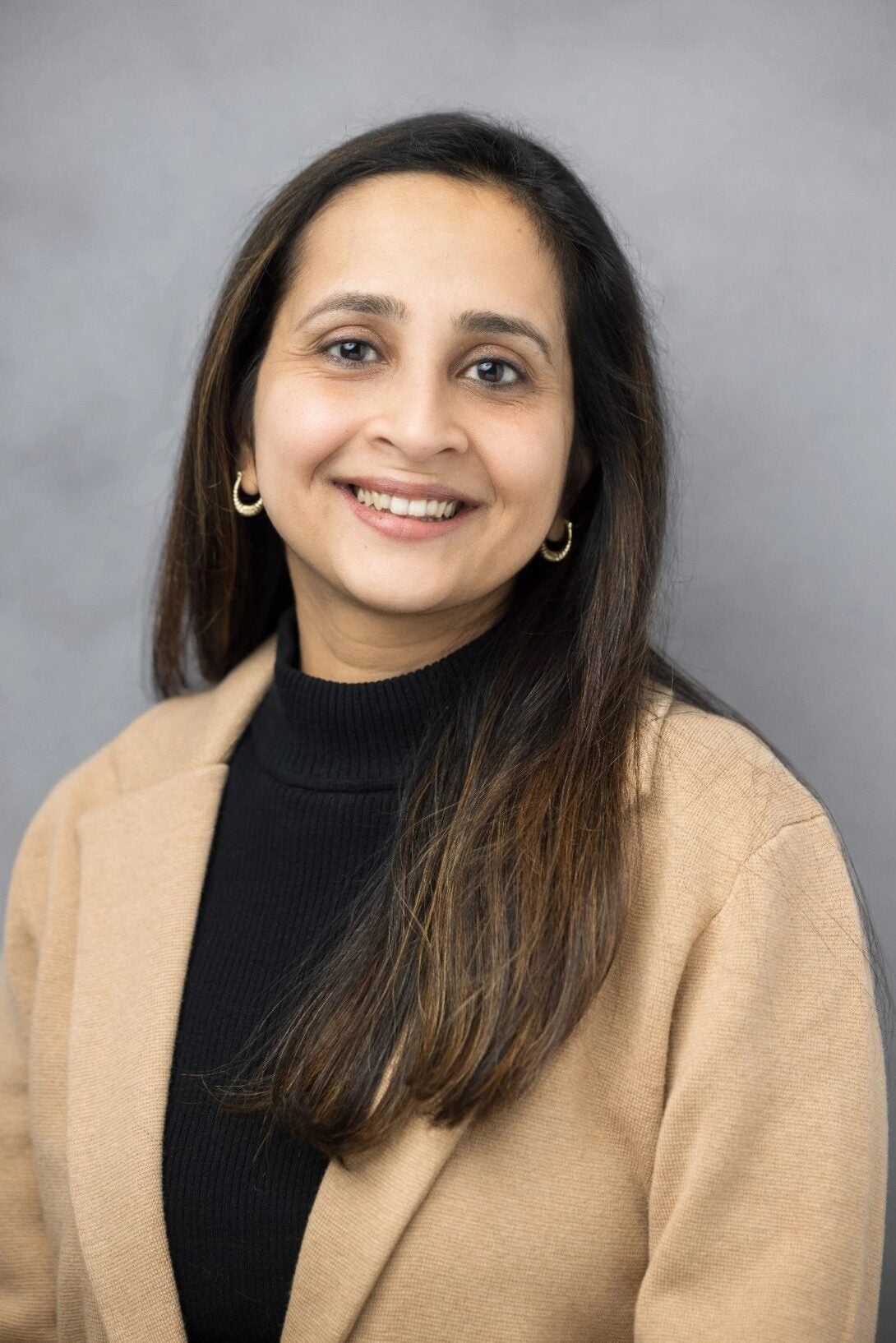
Professor, College of Applied Health Sciences
Bio: Sangeetha Madhavan is a professor in the UIC Department of Physical Therapy and director of the Brain Plasticity Laboratory at UIC. Her research focuses on advancing neurorehabilitation through innovative approaches that enhance brain plasticity using neuromodulation techniques, such as transcranial magnetic stimulation and transcranial direct current stimulation. She investigates how cortical priming combined with high-intensity walking interventions can improve mobility in stroke survivors.
Madhavan is also exploring remote brain stimulation through telehealth platforms, expanding access to advanced therapies for individuals with conditions like ALS. By integrating neuromodulation into home-based care, her work aims to make rehabilitation more accessible and effective. Her research is driving the development of personalized treatments to optimize recovery for individuals with neurological impairments. Her work is supported by the supported by National Institutes of Health, the American Heart Association and National Institute on Disability, Independent Living, and Rehabilitation Research.
Presentation title: The Dynamic Brain: Unleashing Neuroplasticity for Recovery
Abstract: This presentation explores the dynamic potential of neuroplasticity and innovative strategies for motor recovery after neurological injuries. The presentation explores the use of neuromodulation, cortical priming and telehealth solutions to optimize brain function and enhance rehabilitation outcomes. Through noninvasive techniques like transcranial magnetic stimulation and transcranial direct current stimulation, Madhavan’s work aims to prime neural circuits and facilitate functional recovery in stroke survivors. Madhavan’s lab investigates novel neural targets, challenging traditional views of brain organization, showing how unaffected brain regions can take control after injury. Her studies integrate personalized interventions that consider brain structure, function and genetic traits, addressing the variability in patient responses to treatment. A critical area of her research focuses on telehealth platforms to expand access to neuromodulation therapies for conditions like ALS, allowing advanced, home-based rehabilitation. The goal is to create cost-effective, adaptable interventions that clinicians can easily apply, driving accessible, patient-centered care. Madhavan’s work provides a framework for future neurorehabilitation models that tap into the brain’s plasticity to optimize recovery and improve quality of life.
Jennifer Maffucci Heading link

Teaching Assistant Professor, College of Nursing
Bio: Jennifer Maffucci is a teaching assistant professor at the UIC College of Nursing with over a decade of experience in nursing education. Maffucci holds a Doctorate in Education, with a focus on teaching and curriculum and has a certificate in online teaching and learning, skills that proved crucial in supporting students during the COVID-19 pandemic. Since joining UIC in 2019, Maffucci has been dedicated to supporting student success in the classroom and as the college’s student success coordinator.
With a background in adult and geriatric health, Maffucci teaches in both the prelicensure BSN and MSN entry-level programs and occasionally continues to practice as a bedside RN. Passionate about improving clinical judgment, her research interests center around innovative teaching and learning strategies. She also brings expertise in competency-based education, curriculum design, and mentorship, ensuring students are well-prepared for the evolving healthcare environment.
Presentation title: Bringing Case Studies to Life: Integrating Video and Live Polls for Dynamic Class Engagement
Abstract: To enhance the teaching of nurses, specifically clinical judgment and health assessment techniques, I have integrated free, accessible video case studies from the UIC Library into the curriculum, along with Echo360, to create an interactive and inclusive learning environment. This innovative approach allows students to engage in case-based learning through carefully selected video clips alongside critical thinking questions in Echo360. Using this platform, students can respond to case study questions in real time, ensuring active participation from all learners regardless of their comfort with in-class discussions while also engaging their different learning styles.
The process begins with presenting key video segments in class, which highlight specific nursing cases or health assessment scenarios. Students are then prompted to answer case-related questions in Echo360, promoting critical thinking and reinforcing their understanding of the material. Integrating video-based learning with interactive technology has proven effective in maintaining student engagement and supporting various learning preferences. It also encourages participation in students who would otherwise remain quiet during group discussions. After each student answers in Echo360, we engage in classwide discussions, where students can share their insights, reflect on different perspectives and deepen their comprehension of the content.
This case-based, technology-enhanced teaching method has not only increased student participation but also made the learning experience more accessible and engaging for all students. Combining multimedia resources with active learning techniques fosters a more dynamic and interactive classroom environment that better prepares students for real-world clinical scenarios.
Pauline Maki, PhD Heading link

Professor of Psychiatry, Psychology and OB/GYN
Bio: Pauline M. Maki, PhD, is a professor of psychiatry, psychology and obstetrics and gynecology; director of the Women’s Mental Health Research Program, and associate dean for faculty affairs at UIC. She is an internationally recognized leader in menopause research and education. For the past 25 years, she has led a program of NIH-funded research on menopause and its effects on mental and cognitive health. She has over 200 scientific publications on this topic.
Her research addresses important issues in women’s health such as how hormonal changes and menopause symptoms affect women’s cognition, brain function and mood at midlife and the effect of menopausal hormone therapy on cognition and mood. Maki is past president of The Menopause Society, Secretary of the International Menopause Society and past chair of the Society for Women’s Health Research Interdisciplinary Network on Alzheimer’s Disease.
She won the 2018 Woman in Science Award from the American Medical Women’s Association, the Thomas B. Clarkson Outstanding Clinical and Basic Science Research Award from The Menopause Society, the 2023 Health Education Visionary Award from the Society for Women’s Health Research and the 2024 The Vivian Pinn Award for Excellence in Women’s Health Research. She has won several National Institutes of Health awards for her research and service, serves as a research and career mentor to many students and junior faculty, serves on executive committees for several women’s health advisory boards, and is a frequent international and national speaker.
Her work is widely cited in the media, including in such outlets as the New York Times, Wall Street Journal, Washington Post, Fox News, National Public Radio, BBC, the Today Show, NBC News, ABC News, the Guardian and Doctor Radio. Her work has received accolades from the Office of the Vice President of the United States and the Office of the First Lady of the United States.
Presentation title: Optimizing Women’s Brain Health at Midlife and Beyond through Menopause Research
Abstract: One billion women globally are transitioning through menopause or are postmenopausal, yet evidence-based care for women in this universal life event is scarce, even in upper-income countries. Women spend 32% (lower-income countries) to 45% (higher-income countries) of their lives in menopause. Menopause is not a transient biological event — it can have enduring effects on the brain, cardiovascular system, mental health and metabolism. There is no universal experience of menopause. About 25% of women transition through this life phase with few symptoms, while others experience symptoms so severe that they have difficulties performing their daily activities. Menopause contributes $150B in global productivity losses annually, with 33% higher health care costs when symptoms go untreated.
Our goal is to identify and help those women in need of care. The vast majority of women face menopause without medical guidance, despite it being a pivotal opportunity to prevent or moderate chronic conditions. This problem necessitates critical investment to grow the global menopause health workforce to provide quality care, evidence-based information, and effective symptom management tools worldwide.
UIC is playing a pivotal role in this effort through engagement with global stakeholders, cutting-edge research and the development of interventions to treat common symptoms. For the past 20 years, we have been conducting NIH-funded menopause research to get women the answers they deserve. In line with the mission of UIC, we pursue this research with a goal of health equity, recognizing that menopause disproportionately affects women of color. UI Health has a longstanding commitment to conducting community-engaged research in women’s health, particularly for marginalized women living in the catchment area around the city and state. To this end, our research addresses such questions as: What effect does menopause have on women’s cognitive performance and brain health? What role do hormones and menopause symptoms play, and what are the long-term implications for their health as they age? This information is critical in achieving the goal of optimizing brain health and quality of life in women at midlife and beyond. With partnerships at the institutional, state, national and global levels, we can begin to address the many gaps in knowledge and care of women experiencing menopause.
Mary Moody Heading link
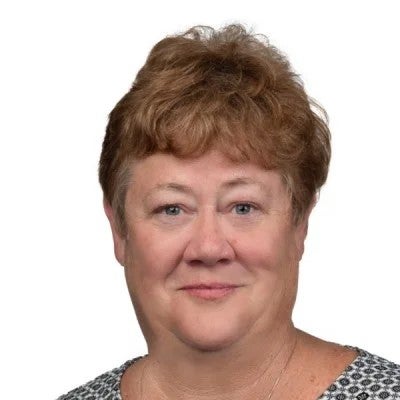
Associate Dean, Professional and Government Affairs, UIC Retzky College of Pharmacy
Bio: Mary Moody is the associate dean, professional and government affairs and clinical associate professor in the department of pharmacy practice at the UIC Retzky College of Pharmacy. She also serves as director of UIC Medicaid Services at the college. She previously was director of drug information services in the department of pharmacy practice. She has been instrumental in expanding the scope of the pharmacist’s practice in Illinois, including pharmacists’ medication prescribing of immunizations, birth control, and HIV PEP/PREP.
Presentation title: Academic Detailing: A partnership between UIC and Il Department of Healthcare and Family Services
Abstract: In 2020, the College of Pharmacy, in collaboration with the University Government Relations team, was successful in passing legislation establishing the UIC Academic Detailing Program for Medicaid prescribers. This program is a statewide evidence-based CME program consisting of web-based curriculum and academic educator outreach. Currently there are 22 topics for academic detailing visits. The academic detailing visits include programs on hypertension, diabetes, asthma, pain management, HIV PEP and PrEP, STI and smoking cessation.Each program is approved for CME credit through the College of Medicine.
The Academic Detailing Program employs 22 pharmacists who develop educational content and deliver the educational outreach across the state. The team has completed over 3,000 academic detailing visits across the state so far in 2024. This is up from 1250 visits in 2023. Additional topics that are in development for 2025 include hyperlipidemia, NASH, long COVID, COPD and arthritis.
P. Zitlali Morales Heading link
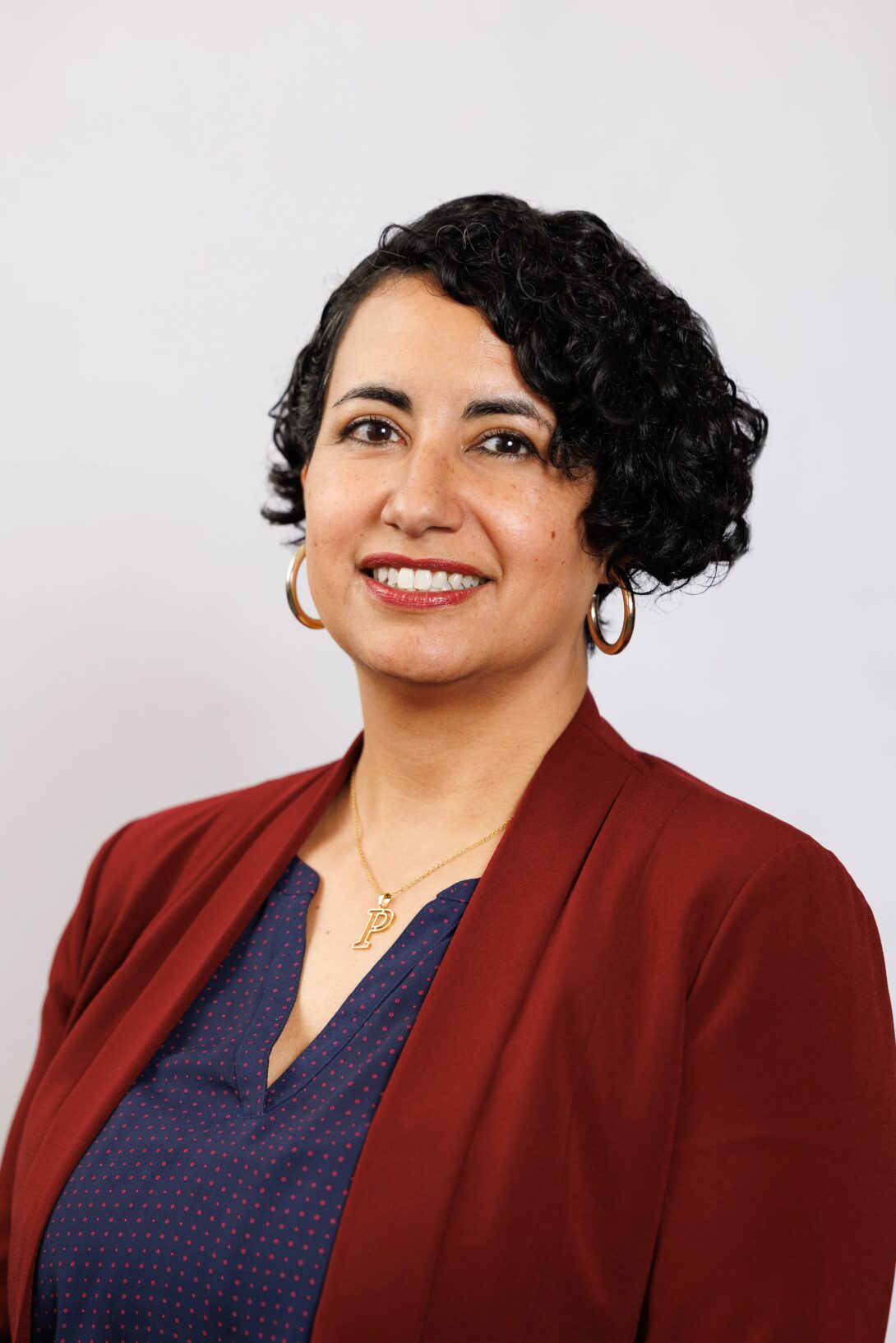
Professor, Curriculum & Instruction, College of Education
Bio: P. Zitlali (Lali) Morales is a professor of curriculum and instruction in the College of Education and affiliated faculty of the Latin American and Latino Studies program at UIC. Lali is the oldest of four daughters to immigrant parents from Jalisco, México. She grew up in Illinois and received a BA in Cultural Anthropology from Stanford University and PhD in Education from the University of California, Los Angeles (UCLA). Her research focuses on the linguistic practices of Latine bilinguals, the language ideologies of immigrant communities, language education policy, and increasing equitable access to dual language bilingual education for Latine and other racialized communities. She works to decenter whiteness in teacher preparation via language education and has documented the testimonios of Latine teachers in Chicago with her research team. Dr. Morales is the co-editor of the book, Transforming Schooling for Second Language Learners: Theoretical Insights, Policies, Pedagogies, and Practices by Information Age Publishing. She is also the coordinator for the Bilingual/ESL endorsements at UIC.
Presentation title: Leveraging Our Linguistic Diversity in Chicagoland
Abstract: Contrary to popular mythology, access to education in more than one language can support students’ language development, helping bilingual students maintain their connection to cultural heritage while also developing academic English. By leveraging the large number of heritage Spanish speakers in the Chicagoland area, UIC faculty are helping prepare the next generation of bilingual teachers by showing them how to draw on their own community knowledges and linguistic skills to teach their future emergent bilingual students. In the College of Education, we have begun several initiatives along these lines. The first is offering several of our teacher preparation courses in the Spanish language, providing undergraduate students the opportunity to use their Spanish in an academic setting for speaking, reading, and writing. Second, through a contract with the Illinois State Board of Education, we are offering coaching to schools and districts across Illinois to support the K-12 implementation of the Spanish language arts standards. Third, thanks to a grant from the UIC Institute for Policy and Civic Engagement, our research collective has delivered workshops to groups of Spanish-speaking Latine parents across Chicago about the language education options available to their children and the differences between different languag program models in Illinois. In this way, we are providing access to academic research to Chicago communities, while also inviting them to participate in surveys and interviews to learn from them. They have shared with us what they want for their children’s education and what their experiences have been with language education in Chicago. Through these various efforts, we are elevating the Spanish language and Spanish-speaking communities in professional and academic settings, while also supporting our own Illinois residents to become confident teachers and meet the demand for bilingual teachers for our ever-growing multilingual student population.
Nadine Naber Heading link
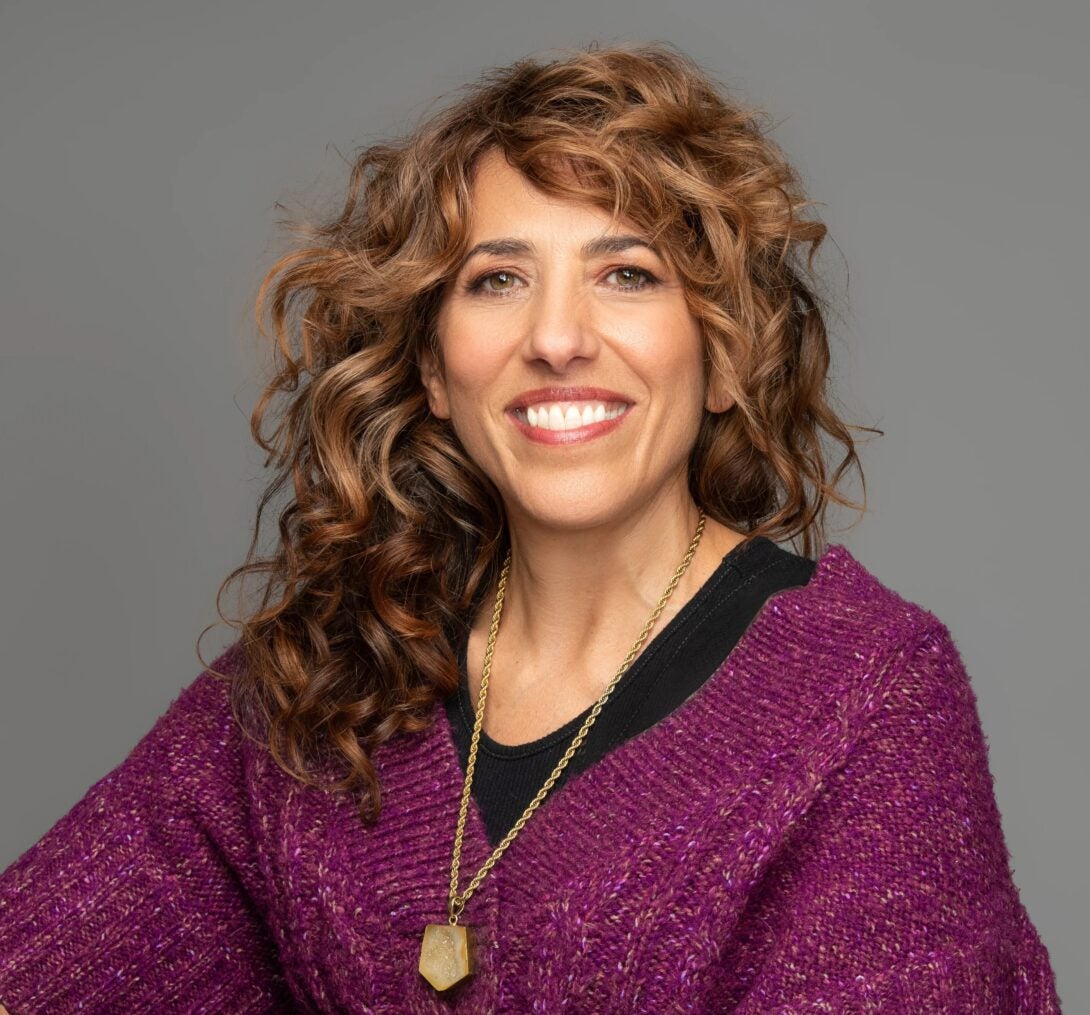
Professor, College of Liberal Arts and Sciences
Bio: Nadine Naber, PhD, is professor in the Gender and Women’s Studies Program and the Global Asian Studies Program at UIC and founder of Liberate Your Research Workshops. At UIC, she is the co-PI of the Middle East and Muslim Societies Cluster and faculty founder of the Arab American Cultural Center. She is author/co-editor of five books, including “Arab America: Gender, Cultural Politics, and Activism” (NYU Press, 2012) and “Arab and Arab American Feminisms.” She is the recipient of major awards such as the 2022 Lifetime Achievement Prize from the American Studies Association, the 2002 YWCA’s Y-Women’s Leadership Award and the Marguerite Casey Foundation’s Freedom Scholar Award. She serves on the boards of the Journal of Palestine studies, the National Council for Arab Americans and the Feminist Peace Initiative.
Presentation title: Pedagogies of the Radical Mother
Abstract: This project contributes “radical mothering” as a theory and method for addressing prison injustices. Centering the lived experiences of mothers of incarcerated people as a crucial social location for research about prisons, this project explores how prison injustices impact incarcerated people on the inside of prison walls and their families and loved ones on the outside, relationally. It reveals how prison injustices have a ripple effect, impacting community-based relationships, finances, health and well-being. It also maps and analyzes what the labor of mother-survivors of prison injustices contributes to social movements and advocacy efforts. In doing so, it challenges dominant discourses of “mother-shaming” and “mother-pitying” that blame or objectify mothers of incarcerated people. Instead, this project uplifts the ways mother-survivors embody and contribute urgent new strategies to prison abolition efforts. Born out of commitments to parenting in safety and dignity while sustaining intergenerational relationships, these new strategies expand existing approaches to mutual aid, community-care work, and multi-racial coalition building. Overall, this project helps overcome dominant concepts of who counts as an activist or policy advocate and what activism or policy advocacy looks like. It does so by positioning mother-survivors of prison injustices at the center of research, advocacy and social change.
Pedro Neves Heading link

Faculty Lead, Computer Science and Design, School of Design
Bio: Pedro Neves is a designer and educator specializing in the use of algorithms and code to generate printed matter, digital interactive installations and other web-related technologies. His scholarly research and professional practice interrogate and explore the relationships between traditional and contemporary design processes, embracing the in-between spaces of both analogue and digital formats.
Presentation title: function codeToPrint() { “yes, now what?”; }
Abstract: This presentation will focus on a series of experiments conducted in a classroom setting at UIC, where students and faculty use code (yes, numbers and mathematical equations) as a tool to generate visual forms and translate algorithms from the digital realm into the physical world. What can code do for us? How can it impact our creative process? Should we fear it, or embrace it? This presentation aims not to provide final answers, but to raise questions, spark curiosity and open dialogue.
Zizi Papacharissi Heading link
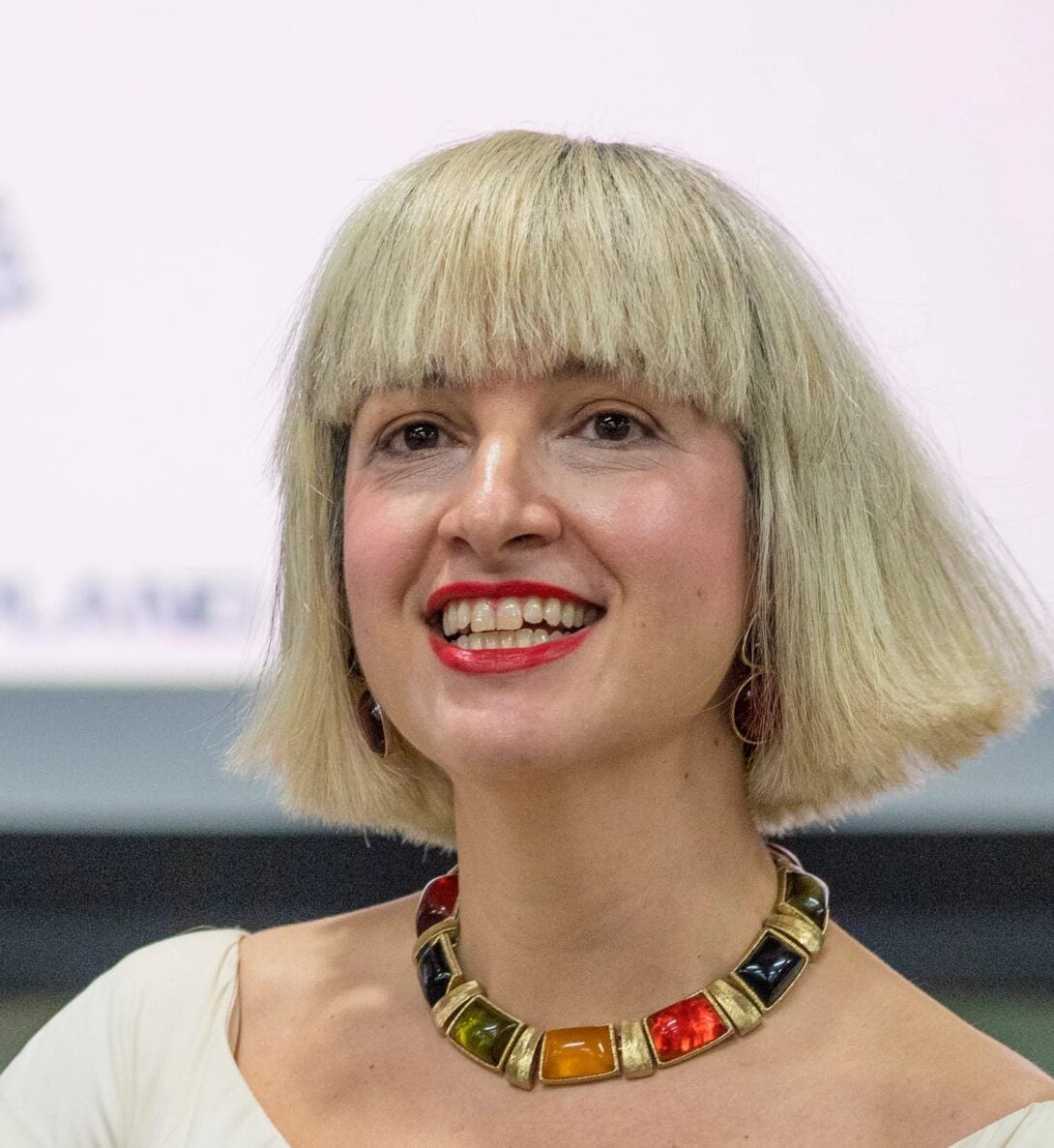
UIC Distinguished Professor of Communication and Political Science
Bio: Zizi Papacharissi is a UIC distinguished professor of communication and political science and head of the UIC Department of Communication. She also is a University Scholar and affiliate faculty with the Discovery Partners Institute at the University of Illinois System. Her work focuses on the social and political consequences of online media. She has published 10 books, over 80 journal articles and book chapters, and serves on the editorial board of 15 journals. Papacharissi is the founding and current editor of the open access journal Social Media and Society. She has collaborated with Apple, Facebook/Meta, Microsoft, Tencent and Oculus and has participated in closed consultations with the Obama 2012 election campaign. She sits on the Committee on the Health and Well-Being of Young Adults, funded by the National Academies of Science, the National Research Council and the Institute of Medicine in the U.S., and she has been invited to lecture about her work on social media in several universities and research institutes in Europe, Asia, Africa and the Americas. Her work has been translated in Greek, German, Korean, Chinese, Hungarian, Italian, Turkish and Persian. Her latest book, “After Democracy: Imagining our Political Future,” is out now, from Yale University Press. She is presently working on two new books on connective AI and digital media and democracy.
Presentation title: Can AI Break Democracy?
Abstract: This talk draws from research to present a quick take on what AI can and cannot do for democracy. It offers insights, advice and ideas for the future development of technology that supports connective democracy.
Yoon Soo Park Heading link
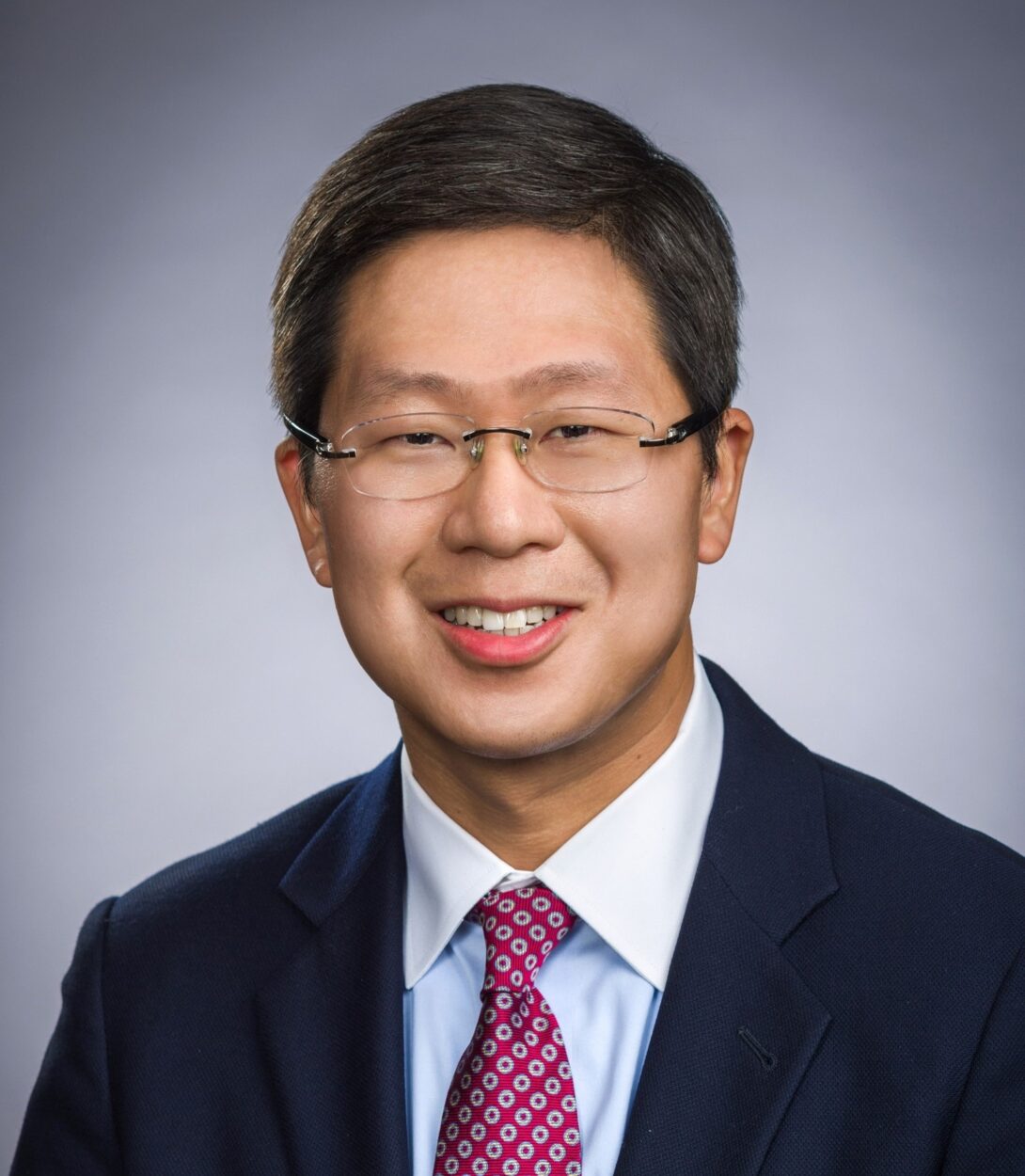
Ilene B. Harris Professor and Department Head of Medical Education
Bio: Yoon Soo Park is the Ilene B. Harris Professor and department head of medical education in the College of Medicine. He is a data scientist with research agendas focusing on assessment, learning analytics and statistical methodologies in health professions education. Park received his PhD in measurement, evaluation and statistics from Columbia University. His experiences include academic and industry settings across multiple disciplines in psychometrics, biostatistics, educational psychology and medicine. He has actively engaged in interdisciplinary research in the social sciences, collaborating with diverse researchers and practitioners across disciplines. Park’s work in health professions education has advanced the preparation of learners in clinical reasoning and measurement of competencies through validity studies. Park previously served as vice president for the American Educational Research Association and Chair of Research in Medical Education for the Association of American Medical Colleges.
Presentation title: Improving Healthcare through Education: Leveraging Analytics and Data Science to Train Health Professionals
Abstract: Education programs routinely gather and synthesize trainee data to improve learning and health care. Over the past decade, the shift toward outcomes-based medical education has prompted better integration of assessments with learning analytics, generating a surge of educational data, both locally and nationally — these data sources include assessments, simulations and trainee characteristics that inform patterns of learning trajectories, progress toward competence, and alignment of training performance with health care and patient outcomes. This presentation will discuss innovative educational research conducted at the University of Illinois College of Medicine in data science and learning analytics systems to improve training of physicians and health professionals using the largest national education data hub in the United States.
Yury Polikanov Heading link
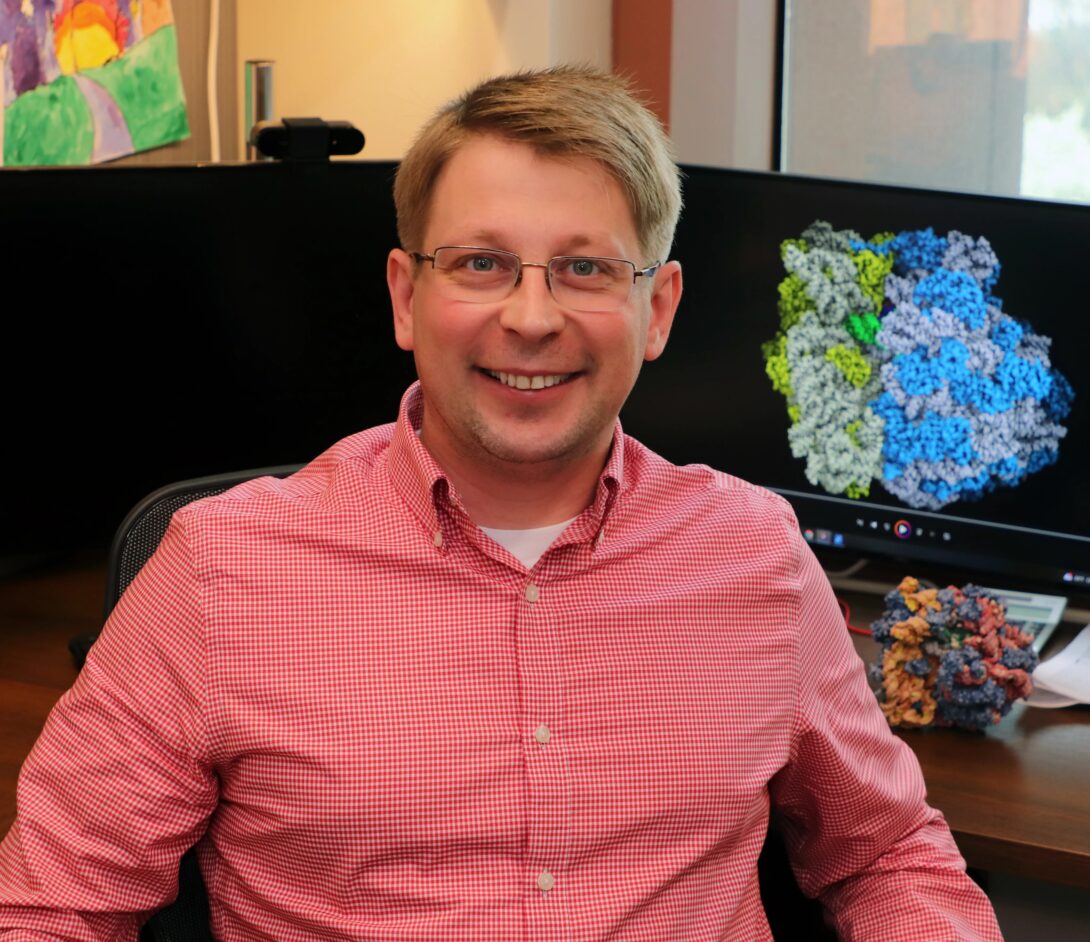
Professor, Biological Sciences
Bio: Yury Polikanov is a professor in the UIC Department of Biological Sciences at the College of Liberal Arts and Sciences. He received a BS and MS in biochemistry/molecular biology from Lomonosov Moscow State University and completed a PhD in cellular and molecular pharmacology at the University of Medicine and Dentistry of New Jersey and Rutgers University. He was a postdoc at Yale University before joining UIC as a faculty member in 2015. Polikanov’s research is focused on elucidating the structure and functions of the ribosome, understanding the basic principles of protein synthesis in bacteria, the modes of action of ribosome-targeting antibiotics and mechanisms of drug resistance at a structural level. He received the 2018 UIC Rising Star – Researcher of the Year Award in Basic Life Sciences.
Presentation title: Ribosome-targeting antibiotics overcoming antimicrobial drug resistance
Abstract: The ribosome is an essential drug target as many classes of clinically important antibiotics bind and inhibit its functional centers. The catalytic peptidyl transferase center (PTC) is targeted by the broadest array of inhibitors belonging to several chemical classes. One of the most abundant and clinically prevalent mechanisms of resistance to PTC-acting drugs is C8-methylation of the universally conserved adenine residue 2503 (A2503) of the 23S rRNA by the Cfr methyltransferase. Another clinically relevant mechanism of resistance to macrolides and PTC-acting lincosamides is N6-dimethylation of the 23S rRNA nucleotide A2058 by the Erm methyltransferases. Recently, we reported design conception, chemical synthesis and microbiological evaluation of the bridged macrobicyclic antibiotic cresomycin (CRM), which overcomes evolutionarily diverse forms of antimicrobial resistance, including Cfr and Erm, that render modern antibiotics ineffective. CRM exhibits in vitro and in vivo efficacy against both Gram-positive and Gram-negative bacteria, including multidrug-resistant strains of Staphylococcus aureus, Escherichia coli, and Pseudomonas aeruginosa. We show that CRM is highly preorganized for ribosomal binding by determining its DFT-calculated, solution-state, solid-state and (wild-type) ribosome-bound structures, which all align identically within the macrobicyclic subunits. Finally, by determining two additional X-ray crystal structures of CRM in complex with bacterial ribosomes modified by the rRNA methylases, Cfr and Erm, respectively, we provide the structural bases for engagement of Cfr- and Erm-methylated ribosomes by CRM. Our structures reveal unexpected concessive adjustments by the target that permit CRM to maintain binding where other antibiotics fail.
Deepak Shukla Heading link

Marion H. Schenk Esq. Professor in Ophthalmology, College of Medicine
Bio: Deepak Shukla, PhD, is the Marion H. Schenk Esq. Professor in Ophthalmology at the College of Medicine and a professor of microbiology and immunology. He earned his PhD in microbiology and immunology from UIC in 1996 and completed his postdoctoral training at Northwestern University in 2001. He has been a member of the UIC faculty since 2001. Shukla’s research primarily focuses on herpesvirus infections. Shukla has trained over 20 PhD students and numerous undergraduates in his lab. He has published over 175 research papers in reputable journals and garnered over 20,000 citations on Google Scholar, highlighting his significant contributions to the field. His national accolades include fellowships in the American Academy of Microbiology and the American Association for the Advancement of Science/ Additionally, he received an award from the American Herpes Foundation for discovering the herpesvirus entry receptor. At UIC, Shukla has been recognized as a University Scholar (2023-26), Inventor of the Year (2023) and Distinguished Researcher (2018). Currently, he is the principal investigator on six NIH grants, including one of the longest-running NEI Center Core Grants and the longest-running grants at UIC.
Presentation title: Ocular Herpes: Mechanisms of Lifelong Infection and Implications for Treatment
Abstract: Herpes Simplex Virus Type 1 (HSV-1) is a prevalent pathogen that infects a significant portion of the global population leading to recurrent and lifelong infections. When HSV-1 infects the ocular surface, it can cause herpetic keratitis, one of the leading causes of infectious blindness worldwide. Shukla’s research provides insights into how herpesviruses establish lifelong infection in ocular and nervous system tissues, the immune responses involved and the latest advances in treatment strategies. A dedicated team of over 20 graduate students and numerous undergraduates, medical students, postdoctoral fellows and junior faculty in the Shukla lab has significantly contributed to uncovering new and important information on herpesvirus infections. The pathogenesis of HSV-1 in the eye is complex, involving viral entry through the corneal epithelium, followed by latency in the trigeminal ganglion. Periodic reactivation of the virus leads to recurrent episodes of ocular inflammation and damage. The establishment of latency and reactivation is influenced by host immune responses, including both innate and adaptive mechanisms. Our research is uncovering the molecular interactions between HSV-1 and host cells, particularly how viral proteins evade immune detection, alter cell signaling and manipulate cellular stress pathways. We are also investigating how the virus’s ability to remain latent in human nerves for a lifetime affects behavioral and cognitive abilities, as well as long-term vision health. While generating fundamental knowledge, a major translational direction involves the identification of novel therapeutic targets to disrupt these viral mechanisms. Our lab has pioneered efforts in developing long-acting antiviral therapies for ocular herpes, including topical adefovir dipivoxil and repurposed sodium-free 4-phenylbutyrate formulations. These innovative treatments aim to reduce the frequency of viral reactivation and improve patient outcomes by targeting viral replication and enhancing cellular stress responses. Additionally, we are evaluating the therapeutic potential of BX795 nanosuspension and activated charcoal particles combined with trifluridine for sustained drug delivery. The development of new animal models, such as the guinea pig model for recurrent ocular HSV-1 infections, has significantly advanced our ability to test these therapies and understand viral behavior in vivo. These models are instrumental in optimizing drug delivery systems and assessing the safety and efficacy of emerging therapies. Ultimately, our research aims to address the urgent need for more effective treatments for ocular herpes, striving to prevent blindness caused by viral infection and improve the quality of life for affected individuals. Our ongoing efforts in understanding HSV-1 pathogenesis and therapeutic development have the potential to revolutionize the management of ocular herpes and offer new hope for patients suffering from recurrent infections.
Yeow Siow Heading link
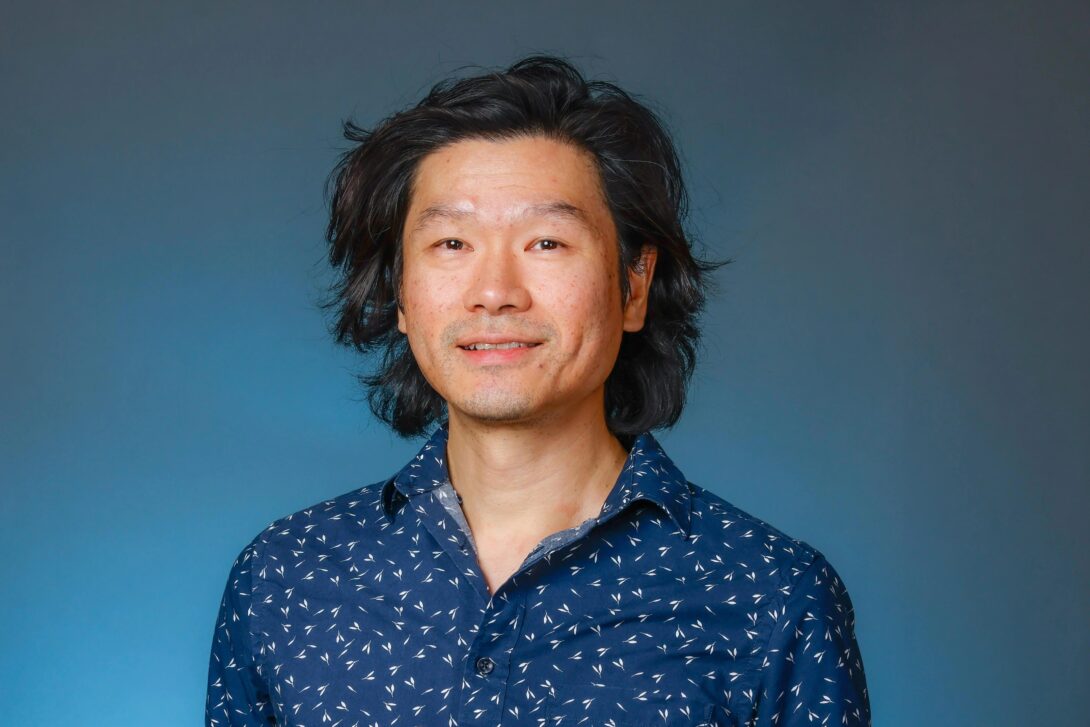
Clinical Associate Professor, Mechanical and Industrial Engineering
Bio: Yeow received his bachelor’s degree, master’s degree and PhD from Michigan Technological University, where he began his teaching career. He then joined Navistar as an engineer, and later brought his real-world expertise into the classroom at Purdue Northwest. At UIC, he currently enjoys teaching and discovering advances in inclusive pedagogy, equitable assessment, student self-efficacy and instructional technology integration.
Presentation title: Investigating the Effects of Fluency-based Assessment and Grading System on Student Engagement and Motivation
Abstract: Many nonconventional grading systems, such as standards-based and competency-based methods, have proven successful in improving student course learning outcomes. This research project examines a newly developed fluency-based assessment system and aims to answer the research question of how it impacts student engagement and motivation.
The conventional assessment system in engineering often penalizes student ingenuity and creativity, discourages learning through research, peer consultation and reflection, and undermines the growth mindset. At best, the conventional grading system rewards students who consistently exercise, and adhere to, textbook precision in problem solving. Oftentimes, however, the conventional system unjustly measures student success, and it can cause undue anxiety and frustration among students, leading to disengagement and lowered motivation.
The fluency-based assessment system seeks to address the pitfalls of the conventional system by focusing on the learning process rather than course grade. An example of a fluency-based assessment system was implemented in a core mechanical engineering course in spring 2023, and data was collected using a self-reporting instrument. Results show that, compared with the conventional system, the fluency-based assessment system generally does a better job in helping students stay engaged with the course content and keeping students motivated throughout the term.
Terry A. Solomon Heading link
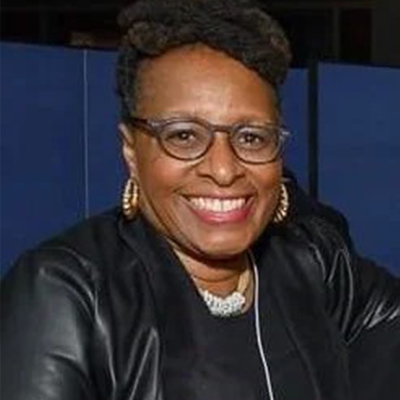
Visiting Senior Research Specialist
Bio: Terry A. Solomon is a visiting senior research specialist and director of training at the UIC Behavioral Health Crisis Hub in the Jane Addams Center for Social Policy and Research.
Solomon is responsible for developing training for the Illinois 988 Suicide and Crisis Lifeline Call Centers, Mobile Crisis Response Teams, and 9-1-1 telecommunicators. She has over a decade of experience in research, program evaluation and teaching graduate social work students. Solomon has also organized and convened public meetings and trained multidisciplinary professionals to create programs and policies infused with social justice, social work ethics and culturally responsive approaches reflecting diverse populations’ lived experiences and community values. Solomon holds a PhD and a master’s in public health and a master’s in social work from the University of Illinois Chicago.
Presentation title: The Role of Culturally Responsive Trainers in Developing and Implementing Training Plans for Crisis Responders
Abstract: Historically, discussions regarding culturally responsive teaching and training focus on honoring students’ cultural values, beliefs and traditions. This approach aims to create educational experiences that are inclusive of diverse cultures and promote educational equity. I want to broaden this definition to emphasize that educators and trainers also contribute their values, lived experiences and professional ethics when developing course and training content. This brief talk will provide an overview of the Community Emergency Services and Support Act statewide training requirements and how familial values, bias, cultural beliefs and social work ethics shaped the process for developing training plans for 9-1-1 telecommunicators, 988 Suicide and Crisis Counselors and mobile crisis response teams to improve mental health services for individuals with and experiencing a mental health or substance use crisis.
Dean Stacey Swearingen White, PhD Heading link
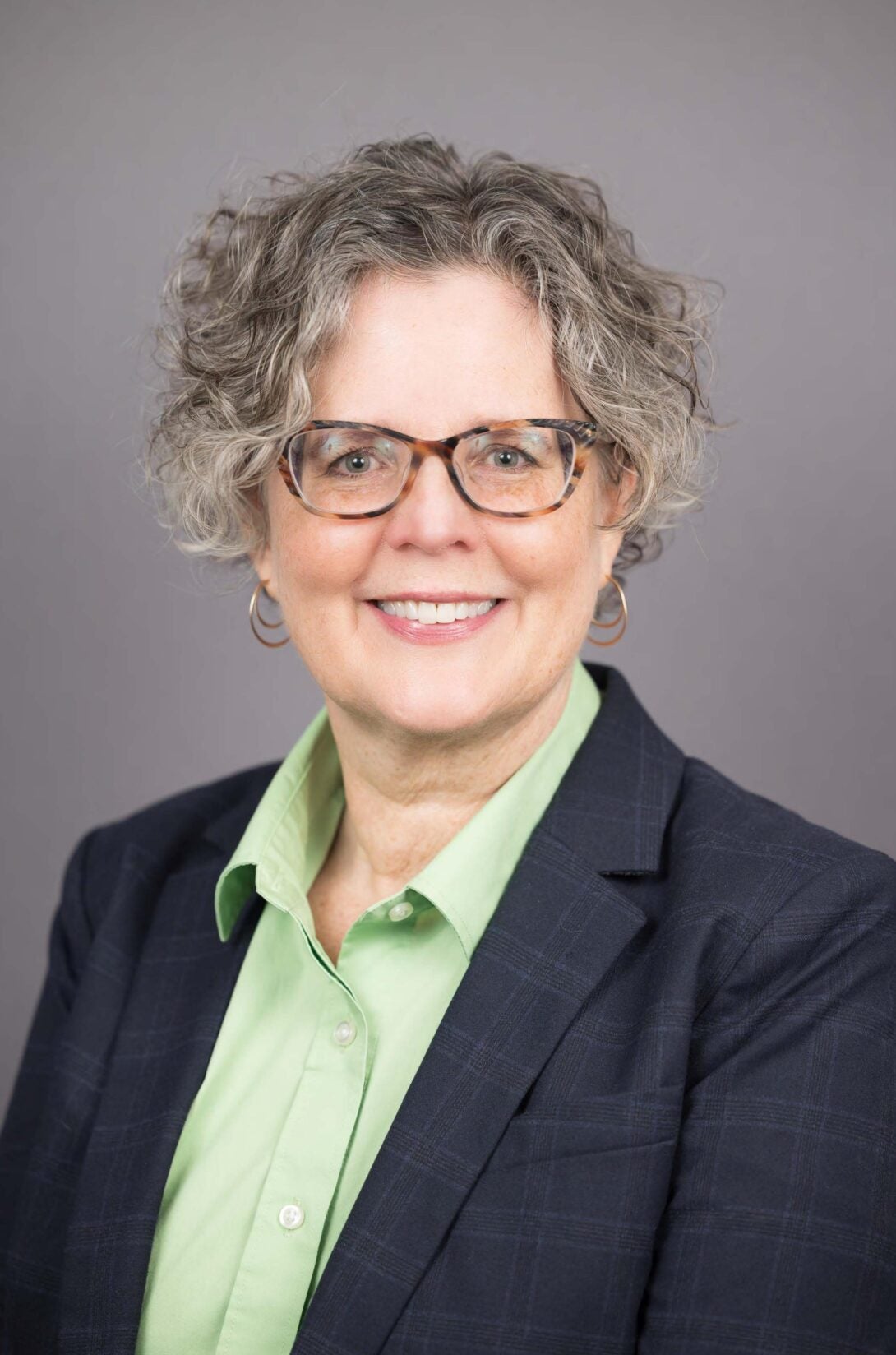
Dean, College of Urban Planning and Public Affairs
Bio: Stacey Swearingen White is the dean of the College of Urban Planning and Public Affairs. She joined UIC in 2022 from the University of Kansas.
Her research and teaching interests focus on environmental planning and sustainability, with a special interest in campus sustainability. She has been back in the classroom this year, assisting with CUPPA’s first-year seminar and co-developing a course on public service careers.
Presentation title: Navigating Difference as a College Student: Early Lessons from CUPPA’s Pilot Program
Abstract: This year CUPPA was selected to pilot a curriculum called Perspectives offered by the Constructive Dialogue Institute. This program seeks to help participants develop knowledge and skills that will allow them to navigate difference — especially political difference — in ways that build confidence, a sense of belonging and openness to diverse ideas.
This presentation will describe the curriculum, how CUPPA has implemented it thus far and lessons that will inform coverage of the remaining lessons in spring 2025.
Maria de los Angeles Torres Heading link
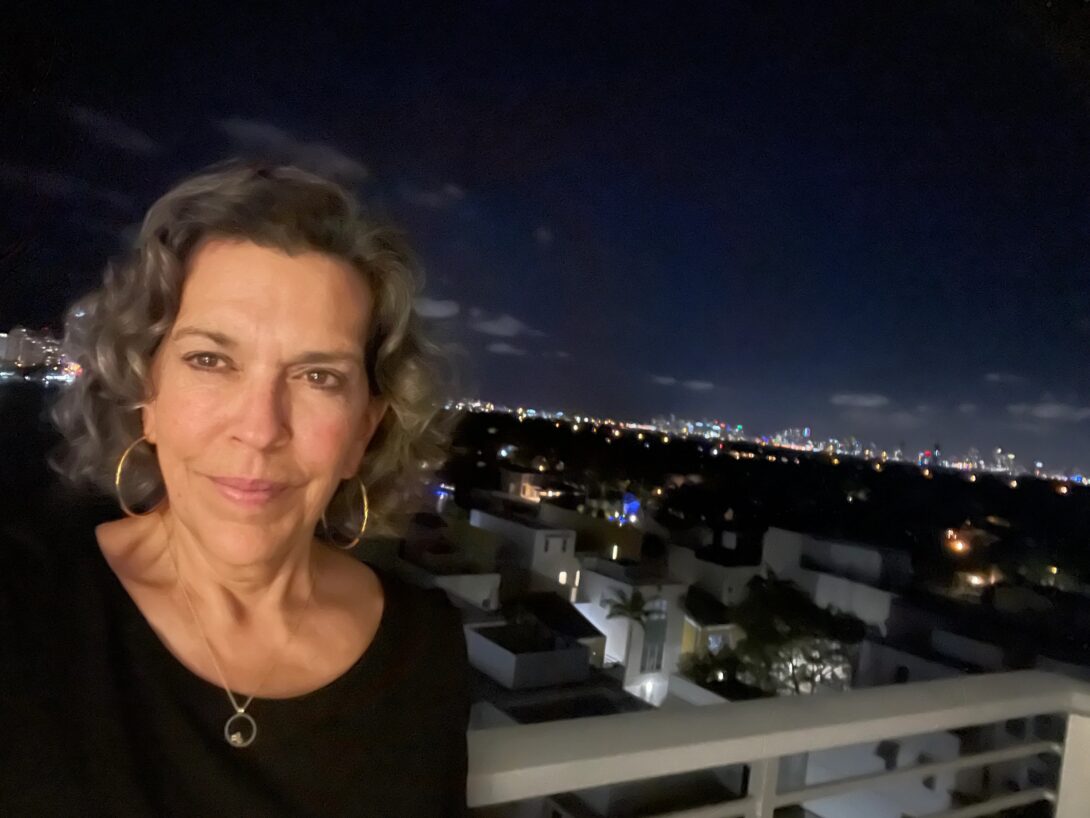
Distinguished University Professor, College of Liberal Arts and Sciences
Bio: Maria de los Angeles Torres is a distinguished university professor of Latin American and Latino studies at UIC. She has written extensively on Latinos, Cuba and Cuban exiles’ politics and identity, immigration and culture. She has authored “In the Land of Mirrors: The Politics of Cuban Exiles in the United States,” “The Lost Apple: Operation Pedro Pan, Cuban Children in the U.S. and the Promise of a Better Future,” and “Democracy and Time in Cuban Thought: The Elusive Present.” She co-authored “Citizens in the Present: Civically Out of Exile” and co-edited “Borderless Borders Latinos, Latin American and the Paradoxes of Interdependence and Global Cities” and “Immigrant: The Case of Chicago and Madrid.” She is a co-recipient of a National Endowment for Humanities grant to work on a project on the impact of Cuba’s war in Angola on Cubans on the island and abroad.
She was director of the UIC Latin American and Latino Studies Program and of the Inter-University Program for Latino Research. She is presently working on two programs funded by the Mellon Foundation that support graduate students in Latino Humanities. She is on the editorial boards of the academic journals Latino Oral Histories and Dialogo.
She is an interdisciplinary scholar who has also contributed to art history projects including compiling a virtual collection of One Hundred Years of Chicago Latino Art and Chicago Latino Virtual Gallery. She served as dramaturge to the Chicago Shakespeare Theatre. She is a frequent media commentator on U.S./Cuba relations and immigration
Torres has a long history of public service, including serving as director to Mayor Harold Washington’s Commission on Latino Affairs, and as adviser to Obama’s transition team on Latin American issues and on Biden’s higher education team. She was a board member of the Illinois Humanities Council and is presently on the Civic Committee for the Goodman Theatre and a member of Cuban American Women for Democracy.
Presentation title: Time and Democracy in Cuban Thought: Elusive Present
Abstract: “Democracy and Time in Cuban Thought: The Elusive Present” explores the intersections between temporalities and political projects. It is a personal and intellectual journey through select Cuban political texts, cultural narratives, works, as it explores nation building, revolution and exile. Guiding this book is an appreciation that at the core of politics is human action, which occurs not in the past or in the future, but rather in the present. Still, political discourses and grand designs are usually situated either in the past or in the future, thus denying the potential impact of human agency and oftentimes leading to authoritarian forms of government. A more democratic political culture requires an engaged present, which is found in the poetic and philosophical work of Eliseo Diego, a poet of the Origenes group.
I explore political temporalities by analyzing political texts and essays, literature, poetry and art. The method I am using in this book consists of a conversation between theories of temporalities and the Cuban experience. The work of Hannah Arendt is one of the central conceptual scaffoldings of this inquiry. Recent events on the island have once again placed the search for democracy and social justice center stage. What lies at the heart of this book is a search in Cuban thought for a present temporality that can encourage a more democratic political culture.